#Capital English Country Dancers
Explore tagged Tumblr posts
Text
Call Of Duty - Black Ops 6
Alejo "Toro" Carasco 🇦🇷🇦🇷🇦🇷
Headcanons-
This actually works more as a personal take on the character? I'm projecting My culture on him. (From one Argentine to another)

______________________________________________________________________________________________
+ SFW. Crimson One Operator.
Related to his background:
• Born around 1966, in the game events he surely is 25/27 years old as he's described as young.
• Place of birth, Salta, Córdoba, or Mendoza cause i cannot conceive that he might be from Buenos Aires. Country side.
• He was born and lived through two military dictatorships; Carlos Ongania (1966-1973) / Junta Militar (1976-1983).
• Lower class citizen.
• Children of divorced parents. Father left at early age so his older brother took care of being the man the house who went to Malvinas War at 19 years old dying there. I imagine Alejo might have been 15-17 when that happened. Then he decided to travel from the interior of the country to the capital to be able to enter in the Argentinian Navy.
• I theorize that he could have been part of an amphibious command, naval prefecture, or a marine command before the Argentine army was dismantled. The yellow handkerchief on his arm is related to a Argentinian Task Force deployed in the Malvinas even thought he was not there.
• He decided to become a mercenary by fleeing the country when the national government took actions against the army after the last coup (1976). He is probably a fugitive, a deserter, or a persona non grata in the country.
• For canonical cultural reasons, he fervently hates the British and Chileans.
• His last name is actually "Carrasco", but it was misspelled in his file.
Related to his person:
• It is impossible for him to not speak without saying a curse in almost each sentence.
• Loves fucking around but despises finding out. He mockes people but can't take back mockery.
• Heavy joker, he bothers his companions out of boredom and because he feels comfortable among them.
• Doesn't likes being alone; wich makes him a loud talkative creature cause he likes the attention. He needs to attract attention to himself. I see him able to follow You around just to keep a conversation while You try to scape from him.
• Behind that ego there is a great insecurity perhaps???? That need of approval the description mentions is for a reason.
• Short temperament, street smart but easy to provoke. He is very confident of himself, which brings him problems since he can underestimate things.
• Competitive af. Likes to have the last word at discussions; and oh shit, don't touch the topic of politics because that is closing the coffin for You.
• He seems like a guy with ADHD with a very extroverted character.
• His loyalty is absolute to the people who earn it.
Other stuff i headcanon about him:
• He's 175cm / 5'8" like the average male Argentinian.
• Good card player.
• Will throw a random fact about himself or his country, doing that often. Misses his homeland.
• He likes to pretend he doesn't understand English when teammates speak to him in English to annoy them.
• He has a nickname for every one of them.
• Jackson Caine by now is the only person that knows how to handle his behavior keeping him on line outside tasks.
• He's pissed that he can't find Yerba Mate anywhere. Avid drinker of mate and almost any kind of alcohol You can give him.
• National Rock enjoyer. (Charli García, Sumo, Los Abuelos de la Nada, Los prisioneros, Virus, Soda Estereo, Fito Páez, Serú Giran, etc.) And a good party dancer.
• He surerly prefers to be addressed by his last name or nickname rather than his first name by strangers; That's something really common here.
• He knows a thing or two about mechanics and economy. Great crafter, and knows how to make good ribs.
• Wild football fan, he went rabid and feral once the Argentine national team won the World Cup in 1974 and 1986. So yeah, he a Maradona and Kempes lover.
• Excellent hand-eye coordination, a football player in his neighborhood as a child. Give him a ball and he will be entertained for a couple of hours.
• His body paint stains everything.
______________________________________________________________________________________________
- A song that could be his Main Theme.
youtube
HE HAS SELF STEEM ISSUES AND DADDY ISSUES.
I did common sense common sense of why he might not have a dad.
Reasons ☝🏼🤓 -
- Attached to his older brother
- He sought a replacement with Caine.
- It's really a normal thing here dad leaving and more at that time where people were disappearing in the midst of an economic crisis.
- His temperament and need of approval of making someone proud. And i quote:
"Because of his need to prove his worth, Toro often angers his peers."
"Did everybody see that?! Please tell me You saw that!"
"See??? I told You that You need me."
- He needs an older brother figure to look at.
That just screams he doesn't has a dad.
There's more I could add but I can't think of much more right now, maybe I'll make a second part!
Man, voice acting made him have dialogues with mexican terms...
#headcanons#bo6 toro#alejo toro carasco#call of duty black ops 6#black ops 6#toro cod bo6#toro#this man so silly with his seelf steem and daddy issues#Youtube
13 notes
·
View notes
Text
Okay next group is recent stuff I liked in no order:
The Menu - Suspense thriller about people attending an exclusive luxury dining experience. Capitalism's effect on art & the artist.
Unwelcome - English couple with a new baby on the way inherit an old cottage in Ireland and try to fit in with locals. Also goblins.
Becky/Wrath of Becky - 13 year old girl is gravely crossed by white supremacists and responds with extreme violence/traps.
Significant Other/Watcher - Maika Monroe joints. Both cat-and mouse thrillers. Watcher is like Lost In Translation, but if she was in Romania and instead of Bill Murray, there's some *other* creepozoid that might or might not be watching/following her. --- S.O. is a sci-fi thriller about a couple who go camping in the wilderness, but they aren't alone.
Snatchers - Rare well-made horror-comedy about a teen girl who gives birth to a monster baby.
Werewolves Within - Solid horror comedy about a small snowy town where a werewolf appears to be loose. Everyone is a suspect!
The Empty Man - An ex-cop searches for a missing girl whose disappearance is connected to a strange urban legend.
Titane - A dancer on the run from the law hides by posing as the missing son of a firefighter. From the director of Raw.
Oxygen - Restrained Aja mystery thriller about a woman in a high tech pod with amnesia. She has to figure out what's happening before she runs out of air.
Alone - Recently widowed woman driving cross-country to move. Some weirdo starts following her.
Ritual - Four friends go for a hiking trip in Sweden to honor the memory of their friend that was murdered. They decide to take a shortcut through an old forest.
The Night House - Recently widowed woman starts experiencing supernatural phenomena in the house her husband built by a lake.
The Sadness - Extremely violent horror about a contagious illness that turns people into viciously cruel murderers. Heavy gore and cringe factors.
Apostle - A man poses as a devotee to a weirdo religious cult run on an island to try to find his lost sister.
Hellbender - A witch/sorceress lives alone with her daughter in an isolated forest and hesitates to tell her more about their nature.
Bad Hair - A Black woman tries to make her way in her new job at an MTV-like music channel in 1989, but runs into supernatural trouble when she is convinced to conform.
Piggy - A fat girl's life is thrown into upheaval when a serial killer comes to her town.
Fresh - A woman takes a chance on love only to be captured and imprisoned by her charismatic date.
21 notes
·
View notes
Text
FFI EURO B COACHES - Julio Del Bosque (Red Matador 🐂)

Back on his childhood, Julio dreamt of becoming an actor. But when losing a youth beauty contest to a charming Pepe Banderas, a part of his broke forever. At least it made him settle with soccer as his future. His overall career had been good enough, even getting to play few adult world cups. Without glory nor pity he played and later retired. Now, this is where he would just become into history as "yet another spanish player", but...
When the Alius menace hit the world, the spanish were torn on how to deal with it. Should they intensize the training of their youth, like the german or english, or should they keep calm like the french or italian? After a huge debate that even involved the spanish royals, things were set. They pretty much let the whole thing to be determined by each autonomous community and their provinces. Many parts of Spain such as Catalonia and Galicia didn't saw much to worry about, but other were more intense, such as Madrid or the Basque Country. So each community's experience ended quite different.
Nonetheless, there was only one way to prove how effective said choices had turned into, and that was by the creation of the Spanish Community Cup. Until now, tournaments had been only with soccer clubs (Spanish Youth League) often concentrated on few locations, but now it was something that'd involve the entire country. Although adults took the chance to create all sorts of controversies from it, the tournament went well, with Navarre (Querardo and Samuel) being the one to hold the cup.
Before the FFI Julio had been a coach twice, first being the coach of the soccer club Gran Madrid -Where David plays in- and later on the team representing the spanish capital. Almost getting a second win post-SYL if it wasn't for Navarre, his performance still charmed the higher ups enough to make him the coach of the national selection; and even more after the navarrese one refused the offer. And so he remained being Red Matador's coach across the Euro League + Qualifiers + Liocott, even if it had quite lots of ups and downs. And controversies. LOTS of controversies.
Julio's most important role however turned out to be on keeping an eye on the Toro Blanco, a mysterious masked figure who started to torment the team. Perhaps an "anti-bullfighting" activist who opposed what the team stood for. At first Julio had a complete adversion towards him, calling him an "annoying hippie" and a menace to his players plus his reputation as a coach. However, and similarly like Querardo, he did start to warm up to the Toro soon enough, now welcoming its usual apparitions in Liocott and considering yet another piece of the great spectacle that was Red Matador as a team. In fact, his liking of Toro Blanco grew so much, that he soon started to approach the dancer with joining the team.
"You don't have to take off your mask, your enigma is what makes things so special! All you have to do is put on the uniform!"
But no matter how many times he tried, Toro Blanco never accepted to represent under Spain, always pointing out their dislike of the team's motif. If Julio wasn't willing to cooperate and change it, why wouldn't they either?
I think that with his boys, Julio's relationship is mostly fine. He's a man full of passion who truly takes seriously the idea of representing a nation. Though instead of "pressure" from carrying the hopes of the represented, his and RM's pride stems from straight up love and admiration for the country they play as. Del Bosque himself doesn't neccesarily bring out any of his boys down nor their skills outside of soccer, and in fact he loves to see them shine outside of trainings.
However, we should also address a huge elephant on the room: If it wasn't clear before, Julio Del Bosque is a huge, HUGE fan of bullfighting; and an unapologetic one at that. He feels no shame on such an "important tradition" being choosen to represent Spain in the world of soccer, and he even likes to apply few bullfighting knowledge on his tactics and the team design. But besides the act itself, Julio's is also a fan of many "matadores"... Including Querardo's father, León Naval. In fact that's his favorite, so imagine Julio's reaction to having none other than León's son in the team. Whenever Querardo its as his worst, Julio won't waste the chance to remind him WHO is he the son of, and what he should be doing as a future matador, blah blah blah. Needless to say their relationship will always be rather complicated, and the more Que proves himself to NOT be worthy as a future matador, the more dissappointed Julio becomes of him.
And as for Peroqui, the ONLY player from the two teams he used to coach... Things are also complicated, specially with Julio's choices on who to represent spain. If things weren't that great during Gran Madrid, they are not improving at all since RM's formation. On Julio's defense, he believes that giving the captain band to someone else will help to calm Davi's rabid temper... Or so he hopes.
#inazuma eleven#red matador#hc:ina11#OC:Julio Del Bosque#David Peroqui#Querardo Naval#God help these poor spanish children
3 notes
·
View notes
Text
Culture of East Timor
The culture of East Timor reflects numerous cultural influences, including Portuguese, Roman Catholic, and Malay, on the indigenous Austronesian cultures in East Timor.
People & Culture
Society
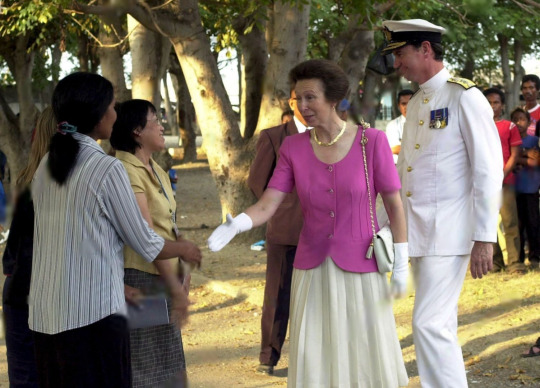
Princess Anne accompanied by her husband Rear Admiral Tim Laurence, shakes hands with East Timor Social Workers in Dili, Indonesia, on 27 September 2005.
Timorese are incredibly hospitable, gregarious and some of the friendliest you’ll ever encounter. Celebrations held at national and community levels are many and vibrant. Timorese society is also conservative and traditional with a strong focus on family, the community and religion.
Population
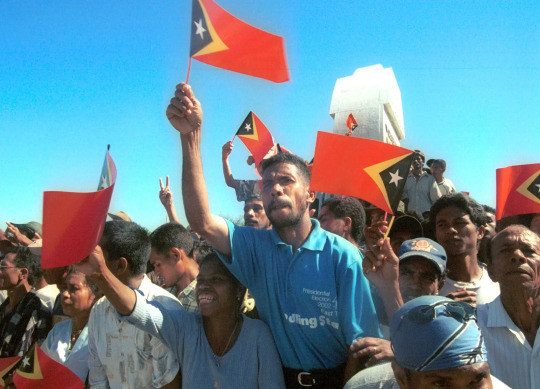
A crowd waving national flags in Dili after East Timor gained its independence, May 20, 2002.

With a population of around 1.3 million, Timorese are linked closely. At the same time the country’s identitiy is composed of many indigenous groups, each with its own language and cultural practices. Tetun is the largest of these accounting for approximately 25% of the population. They live around Dili, Suai and Viqueque. Mambae make up a further 10% and are found in the central mountains. Other groups include the Kemak, Bunak and Fataluku amongst others, each accounting for 5% or less.
Language
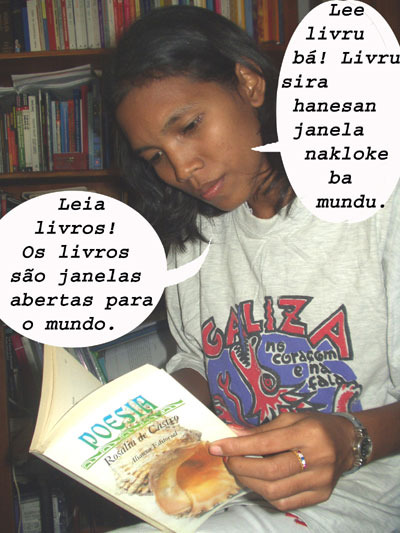
Campaigning for reading in Timor-Leste.

The Portuguese School of Díli
Timor-Leste (East Timor) has many spoken languages reflecting past migration, colonialism and other occupation. Tetun and Portuguese languages have been given official status, with Indonesian and English considered working languages. Another fifteen or more indigenous languages also are spoken.
Settlement
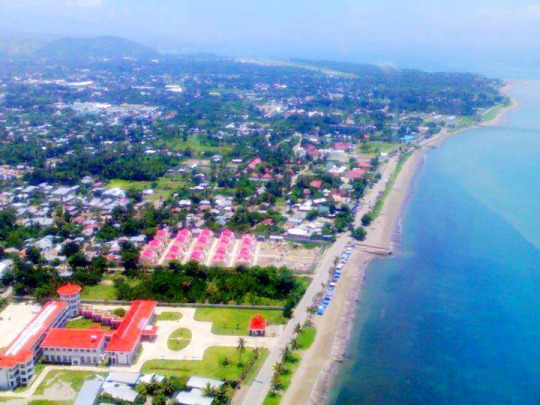
Dili- Capital


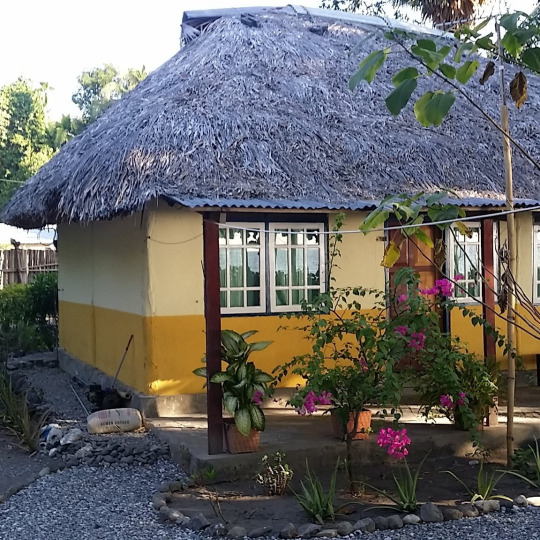
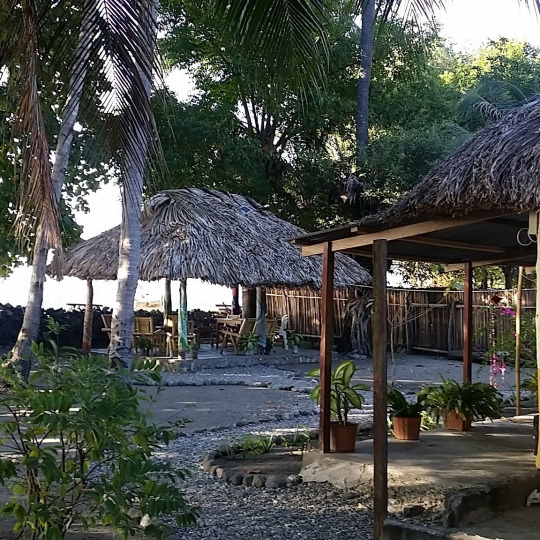

Timorese mostly reside in small towns and remote villages
The capital of Dili is a modern developing city offering a wide range of services and amenities for residents and visitors. While many Timorese are drawn to the capital seeking employment, 70% still live in rural areas. These Timorese mostly reside in small towns and remote villages and practice a subsistence fishing and farming lifestyle.
Religion
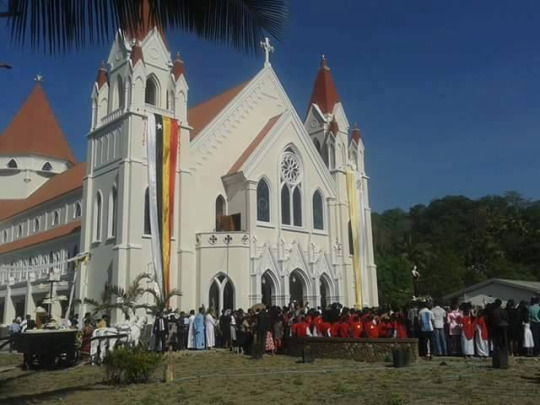
Igreja da Imaculada Conceição church, in Viqueque

An East Timorese wedding in 2006
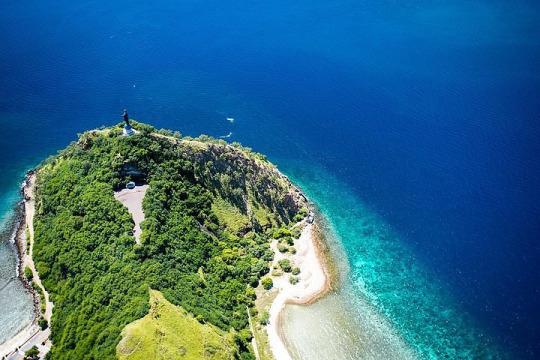
Cristo Rei Dili Timor Leste
Around 90% of Timorese identify as Roman Catholic and the remainder mostly as Protestant, Muslim and Hindu. In spite of this, animism continues to be a persuasive force in most peoples’ everyday lives. Observing the way animist and religious beliefs are seamlessly blended is one of the interesting aspects of holidaying in this country.
Culture
Timorese cultural heritage is multi-layered – a fascinating combination of traditional Timorese, Portuguese, Chinese and Indonesian influences. This permeates their local architecture, cuisine, clothing styles and artistic endeavors.
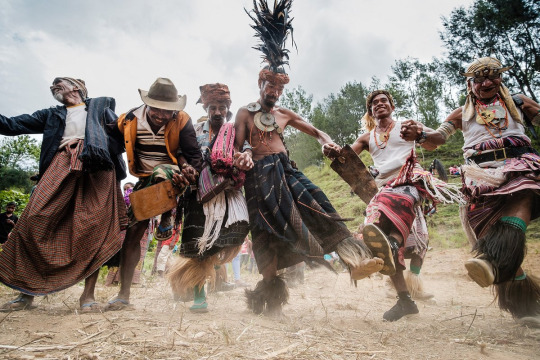
Timorese culture continues to evolve in local arts and handicrafts, as well as in dance and music. Cultural motifs, both old and modern, are incorporated into the design of tais – hand-woven textiles, basket work and wood carving.
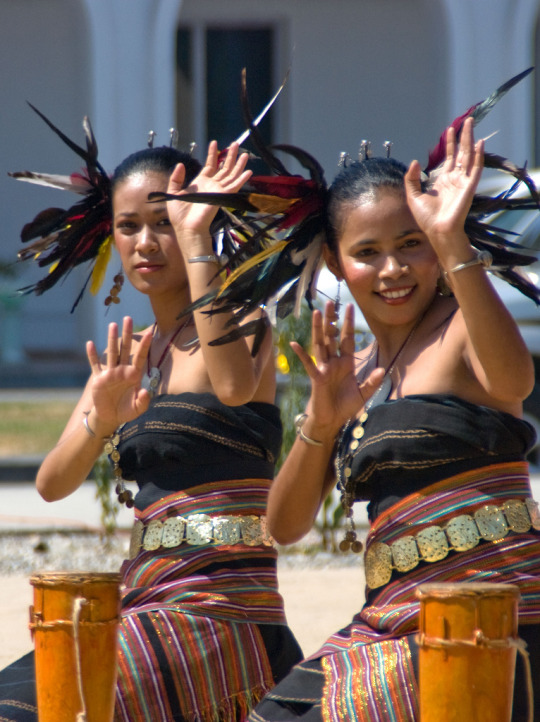
Traditional Timorese dancers
Cultural groups still perform traditional dances and songs and also are entertaining in new ways. Talented Timorese bands and dance groups perform in local venues and at festivals.
Architecture
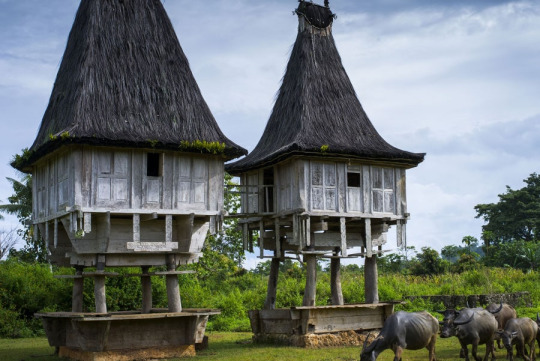
There is a fair amount of architectural variety in Timor-Leste (East Timor), since each ethnic group have their own traditions and customs. However, nearly all architecture has been constructed of wood so few buildings have lasted to the present and much of what stands today is from the past century other than a few structures.
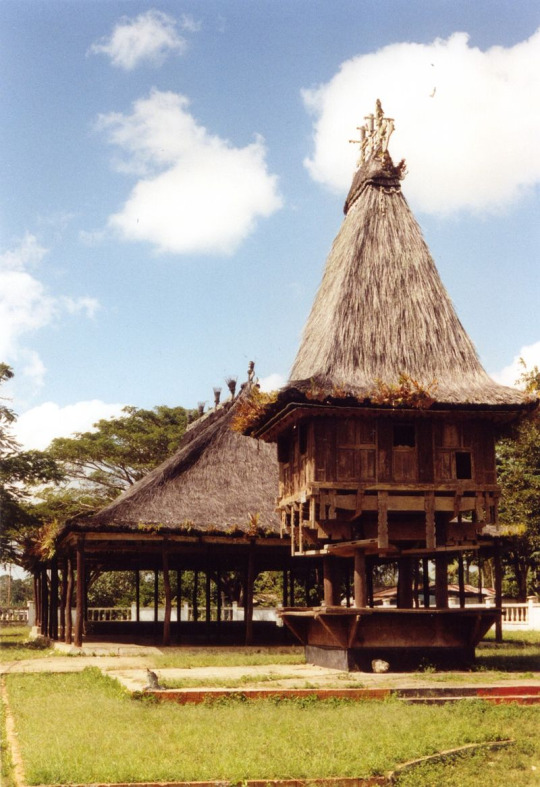
Sacred house (lee teinu) in Lospalos
Early, and still the most traditional, architecture in Timor-Leste is the totem house. Examples of these constructions are found all across the country but vary from one region and ethnic background to another. Uma lulik also mean spirit houses because they hold the spirits of ancestors of the family that owns it. There were rebuilt every ten years to help renew the community’s connection to its forebears and its land.
Also, there are few Portuguese-styled buildings in Timor-Leste, coming from the Portuguese legacy. Most of these buildings in this style are churches or buildings in the capital of Dili. Following on Portuguese tradition of building from stone, concrete, and other more solid substances, today the country has a fair amount of modern buildings made primarily from concrete and glass.
Sport

National sports of East Timor (Timor-Leste) is Football.
Timorese participate in a wide range of sports, including football which they are extremely passionate about.
East Timor has taken part in multiple international sporting events., such as the 2003 Southeast Asian Games held in Vietnam in 2003. In the 2003 ASEAN Paralympics Games, also held in Vietnam, East Timor won a bronze medal. In the Athens 2004 Olympic Games, six athletes participated in three sports: athletics, weightlifting and boxing). East Timor won three medals in Arnis at the 2005 Southeast Asian Games. East Timor was one of the competing nations in the first Lusophony Games, winning a bronze medal in the women’s volleyball competition. On 30 October 2008, East Timor earned their first international points in a FIFA match with a 2–2 draw against Cambodia.
Culture of East Timor - Wikipedia

Timorese children, East Timor, by United Nations Photos
133 notes
·
View notes
Text

Cincinnati would like to welcome;
Busan Jeup is 29 years old and originally from Panmunjom, North Korea. He resides in Over the Rhine and works as Manager of Words of Magic. Many say he looks like Juhnee Park, but we don't see it. Unfortunately for you, he is closed.
The Story of Busan;
Sejun Lee was born in Panmunjom, a city that is roughly 32 miles north-northwest of the South Korean capital, Seoul. Sejun's family is large, mainly made up of women. He is his parent's only son out of 5 children. His parents also had multiple siblings, all the family living on farmland. Jun was seen as a "pretty boy", and quickly became a target for one of his uncles. Homosexuality was punishable by death, so this man had to hide his sexuality. But he wanted to experience being with another male. So why not his nephew? So when Sejun was roughly 10 he was sexually abused, and this continued into his teen years when he would protest he would be hit. So he just took it…
By the time he was 18 he found an escape from the sexual abuse, and he enlisted in the North Korean military. It was required anyway, for 10 years… But he was free or as free as a North Korean man could be. Once in the military, he discovered that he was going to struggle a bit more. Jun had already been questioning his own sexuality, he knew he liked women but he found himself also attracted to men, though the fact he was attracted to both was kept secret he was still harassed for being a pretty face. Because of all this, he became depressed and began self-harming, and thought about ending his life.
At the age of 25, he managed to complete 7 years of his 10-year service, but he couldn't stand the life he was living in this country. He wanted away; he couldn't take this life anymore. So, he plotted and made his escape. It was dangerous and he had been shot at the times he'd been spotted, but he made it across the border and secretly onto a cargo ship headed for the United States. This is where he was able to get fake papers forged, and where he started learning English in New York. He took advantage of his "pretty face" and ended up working as an exotic dancer and did a few other /extra/ things to make money. Once he had decent enough earnings, he finally moved again to Cincinnati.
2 notes
·
View notes
Text
Pedro Pascal - La Vanguardia
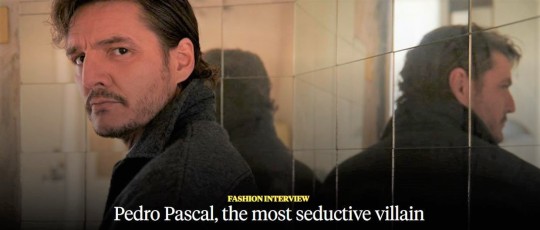
With Javier Peña's mustache as his hallmark, the 'Narcos' and 'Game of Thrones' actor is filming in Budapest with Nicolas Cage and Paco León
Pascal, cultured, seductive and reflective, repeats as Loewe's ambassador for its Solo Mercurio perfume and is a model for 'Magazine Lifestyle'
SYLVIA MARTI 12/13/2020 06:00
Casual striped jacket, tousled hair, exquisite punctuality, and a room in Budapest. There is something about this man, generous in smiles and answers, great talkative, attractive without clichés. Pedro Pascal, 45 years old and face success. He shot The Unbearable Weight of Massive Talent in the Hungarian capital with Nicolas Cage and Paco León, who apparently encouraged the show a lot; We see him without seeing him in the Star Wars universe as a galactic bounty hunter in The Mandalorian and he is Maxwell Lord, the eighties villain of Wonder Woman 1984 , perhaps the only blockbuster that, if nothing goes wrong, will make us happy Christmas.
Session in Budapest The Chilean actor shoots 'The Unbearable Weight of Massive Talent' in the Hungarian capital with Nicolas Cage and Paco León
(full article and photos under the cut)
Chilean by birth, his family left the country fleeing the Pinochet dictatorship when he was a baby. Brief passage through Denmark and new life in San Antonio (Texas). Normal when speaking in your mother tongue some words in English slip through. Think before answering a question without losing spontaneity or being afraid of silence. An art.
There is still Javier Peña's mustache, which catapulted him to fame from Narcos , and you can recognize that little point of joyous irony of Prince Oberyn Martell, who almost ended the Mountain in Game of Thrones . Two roles that have opened doors that he has managed to keep safe from slamming doors and have allowed him to skip the toll of stereotyped roles. Today Pascal, well trained in theater and loved by the cameras, can do whatever he wants. Even dedicating a Saturday to star in a fashion shoot and speak exclusively for Lifetsyle Magazine .
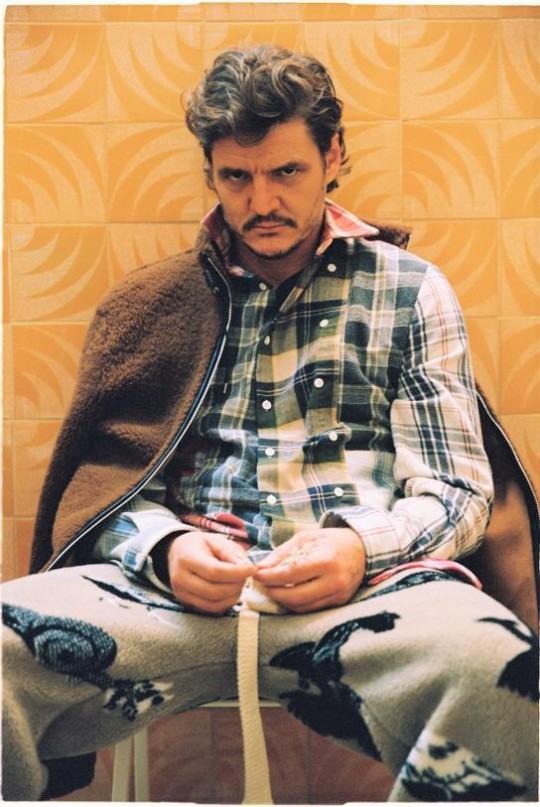
"Nobody knows me but everyone thinks they know me," he said when he debuted as the face of Solo Loewe perfume. Introduce yourself with four words.”
I do not define myself only by them, but I am contradictory, faithful, loyal, sensitive and, at times, a bit geek.
What would surprise me about you if you knew him better?
That although I live life and enjoy family, friends and social connections a lot, I have a lonely point. I like having my space and the option of staying a day at home in a relaxed and cocoon plan .
“Even though I live life and really enjoy family, friends and social connections, I have a lonely point.”
With Covid-19, many of us are already a little tired of staying at home ...
Yes, now that I don't have much choice to go out, I'm afraid of not being able to go back to the theater, to a party, to a dinner with many people ... I really regret those times that, instead of going out, I stayed at home.
Which character has left the most impression on you?
I miss Peña, from Narcos . It was my first leading role, the first time I had time to develop the character, create his energy, his style ... They gave me a lot of freedom to shape it, even if it was based on a real person. I was able to work on it, make it my own, create the tone, invent and deepen.

Do you easily get rid of them when filming is over?
When I was younger I was very clear that they had to be left at work, that the character had to be separated from the person. I thought that with age it would get easier and easier but, surprisingly, the opposite happens to me: it gets harder and harder. Energy cannot always be organized the way we would like and I have to admit that I take some of my characters home with me.
Have you incorporated any of their phrases into your life?
Maxwell Lord has a very attractive in Wonder Woman 1984 : "Everything is fine, but it could be better."
Very eighties. Like the one Gordon Gekko said on Wall Street (1987): "If you want a friend, buy yourself a dog." Have we advanced or are we already for the fourth pet?
We have come a long way. I am very inspired by young people, their strength to face in an original way that win, win and win system that reached a monstrous level in the eighties. Today's young people go deeper into the need to respect a planet in which we all live together and the obligation to take care of it.
“Young people inspire me, they deepen the need to respect a planet and the obligation to care for it.”
I see you optimistic ...
I am a realistic and hard-working optimist. My first impression is that the glass is half empty, I have to find arguments to see it half full.
Is it true that you drew the comic strips to interact with them as a method to immerse yourself in your character in 'Wonder Woman 1984'?
I made a book with images from the eighties and sixties, comic book drawings, papers, erasers, colored pencils, markers and vignettes to better understand what it was to be a man of that decade, how his attitude was forged ... It was a way to focus to live up to what Patty (Jenkins, the director) asked for, which was a lot, and not lose sight of it. I'm a horrible cartoonist, but I had to do something practical to study, understand, and develop the character.

What does a script or a role have to have to get their attention?
Sense of humor. Even if it is a drama, a hero, a villain ... Humor immediately hooks me.
A good shield to go through life ...
The best. It is the most important thing to survive.
Do you remember the last time you laughed out loud?
Paco León immediately came to mind. When he's on set, here in Budapest, we are all happier and we laugh a lot. The entire production loves it. It has made filming more fun.
“When Paco León is on set, here in Budapest, we are all happier and we laugh a lot”
What fascinates you most about the Star Wars universe?
Nostalgia, the huge audience it has, the ability to reach so many people. It reflects our childlike imagination without limits. Create more and more worlds with all kinds of people and species. He is capable of casting the universe
What is your definition of success?
Have a healthy relationship with yourself. Nothing matters if you don't love yourself.
What would you have done if you had not succeeded as an actor? Did you have a plan B?
No. Perhaps the only thing that could have been useful to others is acting as a literature teacher, as a counselor or advisor for people who need help ... I am a bit of a therapist with my friends. And it must work, because they come back. I have a lot of common sense.

What is elegance to you? Has your relationship with Loewe influenced the way you dress?
In that of elegance I am a student, I am learning. I wear what is comfortable but I also have very finite taste and, when motivated, I really like to express myself with style. And when it comes to style, Loewe is on top of everything.
Something material that would save from a fire.
A book. I always have one on hand. Now I am rereading The Magic Mountain , by Thomas Mann. Literature is one of my passions. It is an extension of life. The problem would be to choose only one, there are so many! My identity is made by inspirations from authors, actors, dancers, the art world, the sea ... There is no self without the influence of all the things that inspire me.
“The sea is what I like the most in life. I have respect, curiosity and love for him on a religious level.”
The sea…
It's what I like the most in life. I have respect, curiosity and love for him on a religious level.
If he gets lost, I know where to look for him.
On a boat in the middle of the sea, on an island, on the beach in Chile ... Everything related to water. One of the first smells I remember, although I don't know if it's too attractive, is the chlorine in the pool.

What is your fastest way to disconnect?
Losing your mobile phone. I fell down the stairs in Dubrovnik and at first it was like, "Oh noooo." But then I thought, "Well, a week without him." I had a certain feeling of liberation. Not having to be aware of e-mails, messages ... I find it very strong that people communicate even through a direct message from Instagram. I refuse.
Now that you quote them, how are you getting along with the networks? (He has 1.5 million followers on Intagram)
I am quite active, I use it when I have a good time, but also to express myself and to give my opinion.
“I will say goodbye to the year with a kiss and raising the middle finger. He has treated me well but the collective suffering and fear this year….”
What is your favorite word?
Oxymoron. I like its meaning and its sound
Who would you like to shut up, as you did in the first Loewe Solo ad?
Personally, I would love to shut up that heavy, bad voice, the imp that we all have in our heads. That it's nice to have him and that, and I know he will never go away, but it would be nice if he shut up sometimes. Collectively I think we would all like to shut up one person.

Trump?
I suppose.
What have you learned from this rare year?
That you cannot live without human contact. For me the deep and simple connections with my friends and family is the only thing that matters.
How will you fire him?
With a kiss and raising the middle finger. He has treated me very well but the collective suffering and fear this year….
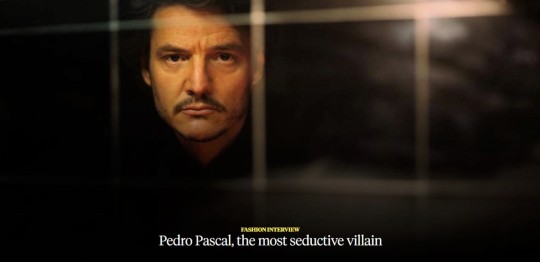
*article translated with google chrome. Source of article*
#Pedro Pascal#jose pedro balmaceda pascal#la vanguardia#magazine article#article#magazine lifestyle#maxwell lord#ww84#the mandalorian#din djarin#lavanguardia.com
134 notes
·
View notes
Text
The Bolshoi Theatre in Moscow - FACTS
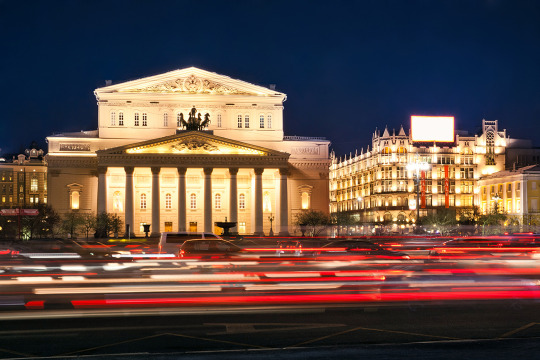
The opening of the Bolshoi Theatre took place on January 18, 1825.
The Bolshoi Theatre in Moscow, located in the center of the capital, on Theatre Square, is one of the symbols of Russia and the brilliant skill of its artists. It's talented performers, vocalists and ballet dancers, composers and conductors, and choreographers are known throughout the world.
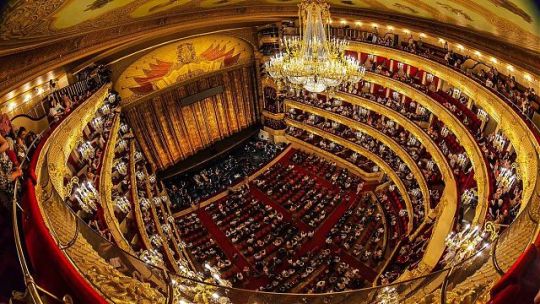
World premieres of operas by Tchaikovsky and Rachmaninov, Prokofiev and Arensky have taken place here. The great Rachmaninoff conducted here.

Interesting facts about the Bolshoi Theatre.
Originally, the Bolshoi Theatre was called Petrovsky.
The first building of the theatre was never completed - it burned down as a result of a fire, so the construction had to start again.
The current building of the Bolshoi Theatre is the fourth in number and was erected in 1835. The second and third buildings suffered the same fate as the first - they burned to the ground.
For the whole time of its existence, the Bolshoi Theatre has staged over 800 different performances.
The first Bolshoi Theatre troupe included only 43 people.

There was a Bolshoi Theatre in St. Petersburg, too. It opened four years after its Moscow counterpart, but in 1886 it was closed.
Despite the fact that St. Petersburg was the capital of the Russian Empire for a long time, the Russian monarchs often attended performances at the Bolshoi Theatre, although they had to travel more than 800 kilometers for that.
During World War II, the Bolshoi Theatre building was camouflaged as an ordinary apartment building in order to save it from targeted bombing. Nevertheless, in 1941 one bomb did hit the building.
One of the most recognizable details of its interior are the chandeliers. During the Second World War, they survived only by miracle, as they were removed and transported to safety just one day before the building was hit by an aerial bomb, the only one in the entire war. It didn't destroy the structure, but the chandeliers still would hardly have survived its impact.
The chandelier over the historic Bolshoi stage weighs about 2.3 tons. It consists of more than 20,000 crystal crystals, which themselves weigh about 260 kilograms. At a height of 8.5 meters the chandelier has a diameter of 6.5 meters.
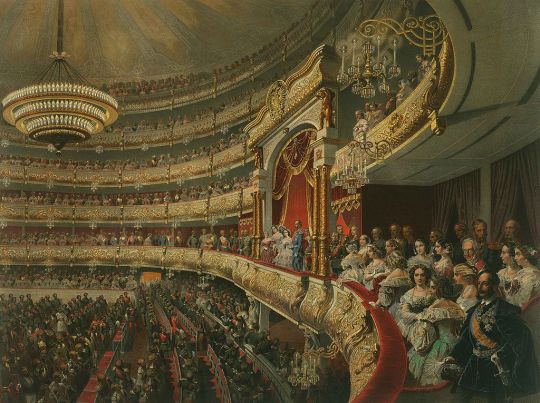
The Bolshoi Theatre building is on the Russian 100 rubles bill
Actors of the Bolshoi Theatre from time to time tour Russia and other countries of the world, so famous performances can be seen not only in Russia's most famous theatre, but also in other places.
The names are not traditionally translated into other languages. Therefore, in English, for example, it would be correct to say "Bolshoi Theatre" instead of using the words "Big" or "Large" - the literal meaning of word Bolshoi.
Today its theatrical troupe includes more than a thousand artists from different countries.

How much one pays for the ticket in 2021-22:
First place in the ranking of the most expensive performances was taken by the opera The Queen of Spades, the part of Herman in which is performed by the Azerbaijani singer Yusif Eyvazov.
A ticket for the Bolshoi Theatre auditorium is available for just 1,200 rubles(around 15$ or 13 Euro), a seat in the front rows costs 17,000 rubles (around 220$ or 195 Euro ), but they're all sold out long ago.
#russian#russia#russian culture#moscow#amazing facts#balleralert#ballern#ballet#culture#speak russian#ballerina#ballerino#bolshoi theatre#bolshoi ballet
5 notes
·
View notes
Text
🌻 Random Headcanons pt 2🌻

[ Ivan x Mel ]
x Mel makes its her job to correctly pronounce people’s names how they are pronounced in their language. Alfred thinks she’s doing too much and she tells him that he is jealous he has a basic old english white man name. Ivan finds it alluring and does his best to say her name how it’s pronounced in Greek. She tells him there is no need but really she enjoys it. This also starts Mel correcting others when they say Ivan’s human name in public.
x Mel only addresses the countries by their human names unless they get under her skin then she calls them by their whole name. I mean official government name, Republic (United ) and all. She might even get fancy and say it in their language so they will know she’s serious.
x With the assistants being around the countries interact a lot more than they normally do. A lot more hanging out outside of work, stronger friendships, Canada had the biggest impact with everyone in the meeting knowing who he was because his assistant is very much a hot head and will cuss you out if you call him anything other than Canada.
x Ivan didn’t have an assistant for a while but eventually he got one and it was a rather strict slightly older than the rest male. Alfred made a joke that Putin sent a minime and Mel had to shut him up before anyone else heard him. Luckily the strictness slowly faded away and Mel found out Ivan’s assistant was actually a old soul dork who was a dancer on the side.
x Mel and Ivan play matchmaker with other nations and sometimes their assistants. This is how Mel found out that half the world has already slept with each other. She really can’t look at England the same. This is how Ivan found out he has two admirers that are Germany and France’s assistants. Since Ivan and Me’s relationship is still private she finds it cute the others fond over Ivan. She even joins in on letting them talk about him as if they have a chance. She keeps her victory to herself.
x Mel found out Ivan can sing his fucking heart out (literally), but he keeps it to himself so she has to catch him around his house when she comes over. This is rather difficult since she doesn’t know the lay out of his big ass house very well and he moves around a lot when he is busy. He can even throat sing as well, he learned from China and Mongolia when he was a child. At first it scared the shit out of Mel.
x Mel has stumbled upon Ivan’s wide collection of pipe that he keeps in his normally locked artillery. When she asked him about it he looked pale and admitted that during wars with other countries when his people destroyed towns he would collect them as trophy. When Mel looked closer on the sides Ivan had carved in the sides the name of the county and towns. When Mel asked him about the pipe he used to carry in his trench coat. He told her it was actually a pipe from his old capital/home.
x Ivan was the one to teach Mel how to shoot different types of guns. She told him it wasn’t necessary but he kinda tricked her into learning with a bribe. Now she knows how to aim and fire machine guns. What was the bribe you may be asking? Ivan keeps his april fools dress and other dress like costumes and told her he would model them for her. Mel couldn’t resist after she overheard how cute Ivan looked from Francis.
x Some of the countries have some supernatural element besides being immortal. Ivan falls into the list despite not being fully aware he can do it. He is aware that he can teleport and be summoned, he can see and very rarely control Gentral Winter, but he isn’t aware that he has full control over his scarf like extra hands. He isn’t fully aware that he can control anything winter related outside of the season. Many times Mel has woken up to Ivan’s body being completely frozen and the bedroom being iced over. She’s had to wake him so she wouldn’t die.
x With that being said Mel is kinda terrified of spending some winters with Ivan because he does this thing were he shuts down completely and “freezes to death” and can be sleep for days before waking up fully energized. When this happens tho his whole house turns into a tundra and no matter how many times Mel turns up the heat its still cold. She’s had to call Tolys to come help her either make it through Ivan’s snow hibernations or take her somewhere else to stay.
x Ivan always feels bad when he wakes up to find a note and blanket draped over him. When Mel finally asked why that happens it was a very touchy topic and she understood if he didn’t want to talk about it. He admitted months later while they were in the countryside enjoying the summer that he has actually died and been reborn twice, everytime he died he did so outside in the snow from freezing to death. Both times he was reborn he had woken up in sunflower fields because it was the warmest part of his country. But when he is home his powers try to replicate the harsh winters inside which causes him to freeze for a few days then wake back up.
x Ivan doesn’t want Mel’s pity from his time growing up and his time as a country. He just wishes for her to listen to him when he speaks even if she doesn’t understand it all. Ivan has a lot of baggage he carries and he is aware of his outstandish behaviors and interactions. He is better than what he was but he still has his moments were he relapse back into his dark days. But he never takes it out on Mel or anyone around him, he always locks himself away until he feel able to come out. Those are the days Mel feels that Ivan is most human and she stays by his side.
x Ivan loves spontaneous vacations and he offers them to Mel every chance he gets. But Mel being Alfred’s assistant and a public affairs member has to work long hours. Ivan takes pity on humans for having to work so hard but he understand it (I mean this IS Russia we are talking about...) But when she turns in her vacation days she is quick to pack her bags to go to somewhere random. Yao has welcomed them many times his his home.
x Yao was the first person Ivan told about his relationship. Although Yao scold him about how dangerous and stupid falling in love with a human was he still supports him. To Yao Ivan is still a child looking for someone to love him more than anything. Yao wont take that away but he will pay attention to Ivan in future dates when the time comes when Mel is no longer with him.
x Ivan has taken Mel snow drifting and nearly gave the girl a heart attack. Matthew has offered to join them and she has never seen two grown as men nearly flip a car so easily from having fun. Alfred likes the rush when he is driving but he panics when anyone else takes the wheels. IVan and Matthew purposefully shove Alfred in the back with Mel.
x Mel really loves museums and Ivan makes it his duty to take her his when she comes over. They have a lot of dates at the museums and Opera Houses. Ivan finally gets to express his love for the arts unlike before when Mel is around. He admits he’s favorite culture besides is own is Francis’s and it’s noticeable.
x Ivan keeps many historical items in his house that even historians know nothing about. He thought it was the only way to keep them safe and away from the public so they wouldn’t be stolen. Though he admits some of the items he took because he liked them. Ivan told Mel that even though he didn’t like Nicholas II (more like he really didn’t like the fact he was in charge) he was very fond of his wife and children. They used to call him uncle Ivan. Ivan owns a few dresses and crowns that belonged to the girls. He even owns a crown and a gown from his favorite queen, Catherine The Great. He has allowed Mel to wear the crowns before and has even commissioned a republica of a few of the dresses for Mel. Though she prefers to wear Ivan’s traditional clothing when she can. But playing royalty is a wonder touch.
x ^^^ Ivan has even joined her in dressing up and they’ve done countless Beauty and the Beast like dances in Ivan’s living room.
x Ivan doesn’t like the movie Anastasia but he will admit the song Once Upon a December is a really good song. Mel had caught him singing it a few times.
x Ivan can grow body hair, Mel really wanted to see him with a fancy bread and mustache he used to wear back in time. Ivan has a lot of portraits of himself scattered across his country that other humans are unaware are all the same person. She noticed a rather famous painting of Ivan hanging in his international museum during one of their dates and it was one of him with a full beard. So in the time he was growing a beard everyone at the meetings were confused. Until one day He showed up with an icon russian beard and Author nearly choked on his tea thinking he saw a ghost of a czar. Francis loved it. Alfred was high key jealous because he could never grow good facial hair.
x Ivan is the Justice Dance master, he doesn’t care how silly he looks he wins everytime. Nation sleep overs are fucking wide.

#🌻Optimistic Tragedy🌻#oc x canon#s/i x canon#self ship#self shipping#self shipping community#Hetalia
5 notes
·
View notes
Note
Hi! Just wanted to thank you for creating and sharing screenshots of you aesthetically perfect Stardew farms and telling about their inhabitants. These are hard times for so many people, these pictures really bring joy into everyday life. If it's not too much to ask, could you please share more about Annie and her farm? And also Marina, it was so nice and heartwarming to see a non-demonized Eastern-European character. I love you, have a great week!
(quick note — i actually saw this ask quite awhile ago!! i loved it so much and was so happy, i wanted to give a long answer, but unfortunately i got busy with some school work so i left it go for a little while! i’m sorry anon that it took me so long, but i hope you understand and i hope you still enjoy hearing about my farmers ~)
this actually makes my day anon omg 😭 i am so glad my little stardew blog could be so uplifting... this game got me through some tough moments too so i’m really really happy i can be part of sharing it with more people and making them smile! 💞
it’s definitely not too much to ask haha, i love talking about my farmers! each of them are so special to me, they are born out of many different parts of my life that are meaningful to me ~! this will be under the cut, i got a bit carried away... 😄🌱🍓🌷🌱
so annie is actually a fairy by birth! she used to be very tiny, have wings, and she lived in a fairy hollow community very deep in the secret woods. she had always felt drawn to the human world, and after doing some work as a “crop fairy” her desire to become human was cemented. on her 18th birthday, she chose to forfeit her wings and most of her magic in order to become human, worked among the city lights for awhile at joja (which she strongly disliked, as she would put it), and eventually took over lavender farm west of pelican town from another aging fairy-turned-man. as a fairy, she had significant magical abilities that made growing plants and flowers a breeze… because of that, she’d always taken the process for granted, but upon more time spent observing the human world, she became more interested in their processes of agriculture and floriculture. she still has some powers left over that make crops grow a little bit faster and a little bit higher quality, but most of it is just hard work on her hands and knees in the beaming sun! her goal is to create a floral sanctuary… she specializes in flowers, teas, and honey + wax! her farm is overgrown and the stardew valley times newspaper may be a bit judgmental of how she keeps her land, but anyone who ducks into the lush sanctuary of lavender farm is immediately soothed and fascinated by its natural beauty. even annie’s farmhouse is bursting with potted plants and insect terrariums!
i created annie because the small, seamlessly-integrated sparks of magic is such a cool part of stardew valley to me. i loved that a game that was based in realism could still have elements like fairies, wizards, witches, mermaids, and monsters..! i wanted to get deeper into that part of the game ~
(bonus: i did not initially have a plan for who annie would marry and i considered even just having her single, but after some cutscenes with elliott, the concept of him being a merman-turned-human hit me! merman elliott just makes sense to be… he lives on the beach, he is a romantic, he’s got that long luscious red hair, he is deeply worried about ocean pollution, he’s a little awkward... once it was in my head i couldn’t get it out! i didn’t even realize it was an infamous theory haha. i just thought, how wonderful would it be for these two individuals who shared a similar journey — leaving behind their homes, changing species, moving to stardew valley and trying to fit in — to form a bond, fall in love, and create a life together in a world that is new to both of them? <3 annie/elliott is easily one of my favorite farmer/bachelor(ette) relationships i have! i could truly talk about them all day~ )
marina was born out of three things — 1.) my desire to play stardew valley expanded, 2.) my interest in sdve’s bachelor victor and how he has a name that is very popular in russia, 3.) my interest and appreciation for eastern european culture…
personally, my family is south-central european and i have grown up in the USA. aside from being trained as a ballet dancer all throughout my teenage years and hearing about vaganova, bolshoi, mariinsky theatres + having two russian kids as classmates and friend in primary school (one was named victor, haha!), i didn’t know much about russia or eastern european culture growing up. we didn’t have many opportunities to learn. anything i learned was more about the government’s problems, not the culture, which i find extremely sad… a government’s actions should not define or generalize a whole country or region of millions of citizens, especially when said citizens don’t have a lot of power. citizens, for the most part, are just people who are living.
in the city i currently live in, there is a “little russia” and “russian hill”, both of which i have visited many many times with my boyfriend who lives near there and who is eastern asian. everyone who lives there and 95% of the people shopping + eating there are eastern european immigrants. every shop there is authentic — most of them have everything written in cyrillic alphabet (usually russian, sometimes ukrainian) or occasional central european languages (polish most common) or balkan languages (croatian is common — my favorite market item is elderflower fanta soda, which is a croatian drink!). one of my favorite stores has music CDs and movies, signs, snacks, children’s books, and even birthday cards all in russian! there are grocery stores that only sell things that would be sold in an eastern european market, none of the labels in english (which can be difficult if you are looking to buy something for the first time without understanding the language), but it is such a neat thing to have. i remember always thinking, i’m so glad that this is here for the people who are moving away to a brand new country, so that they can always have a taste of home. i began realizing when visiting there just how massive eastern europe really is, how many countries and languages are a part of it, and how much culture and rich history there is to be found there. i played SDVE briefly with a different farmer and when i met victor, he immediately stood out to me as someone i might meet in that neighborhood. i head-canoned him as mixed-race: part eastern european and part eastern asian. he reminds me a lot of my boyfriend… a bit unsure and nervous about kickstarting his future but incredibly gifted and intelligent, and olivia reminds me of my boyfriend’s parents, who came from strict communism and poverty in china and now live in the USA taking full advantage of capitalism/consumerism (lol!), but are just a bit oblivious to their son’s mental health as it isn’t something they are familiar with. i saw a lot of parallels to things i’d seen in my life in victor, and i really wanted to create a farmer that could fit into this narrative with him. all these things combined… marina was born! i wanted to be sensitive when envisioning her, and settled on the stories of real people from eastern europe that i’ve met — she was quite poor, overworked, and didn’t have some of the freedoms she desired, and decided to move to stardew valley for a better chance at success. i wanted to portray that living in eastern europe’s economy can be very difficult, but the culture is still beautiful and should never be let go of just because of immigration… immigration doesn’t mean changing your roots or being ashamed. marina is just a sweet girl who was struggling to get by and needed a change of scenery and new opportunities… but she’s not letting go of her past or her culture, because there is no need to!
feel free to ask about any of my farmers... i will try to be more succinct next time 🤪 definitely, definitely got carried away haha!
6 notes
·
View notes
Text
Ask Responses: Education
I have no idea what all of that fuss was about the comment on the education system. As a high school teacher in Southern US, I work hard to make the education great but obviously not all teachers succeed, but your comments also had nothing to do with the US😂. So I don’t really know why everyone is coming after you. Keep on doing what you’re doing. Your blog is great and informative, and it’s great to see info about Russian dancers from someone who actually understands the lifestyle of Russia.
Thank you! I’m very surprised as well. And a bit alarmed. I’m not sure how people took what I was saying as an attack on teachers. I was half-expecting my compatriots to come out in defence of Russia’s education system, but definitely not this. I’m relieved to hear that you, as a teacher, did not take offence. And it’s really cool to learn where my readers are from too!
-
i don't think you were wrong in the slightest. governments seem to place less of a priority on education these days, cuts in funding are unfortunately very common. none of what you said implied teachers weren't doing their best, just that no one seems to be supporting them these days with an adequate budget. that makes a difference in the quality of learning, and the curriculum has only gotten more demanding.
Thank you! I’m concerned that my words were taken as an attack on teachers. It was definitely not my intention. If I were to criticise a particular group of people, it would definitely be the government. Specifically, the people who bring about educational reform, having never set foot in a classroom (as an educator) themselves, or the people in charge of the purse strings.
-
Apparently people are very good at giving criticism and expressing opinions regarding others but not so good at taking *constructive* criticism and opinions *founded on FACTS* towards the category they themselves belong. Don’t take it personally Melmoth, it is not worth it!
Thank you. I’m not taking it personally, but I don’t feel great that a group of people felt personally attacked by my comments. Ruining someone’s day is the exact opposite of what I’m trying to do here.
-
I’m startled. You expressed your perspective on education in a fine way. You were NOT rude, and I totally agree with you. I’m from Europe and in my country, due to more than a reason, school is not what it used to be at the time of my parents and grandparents. Here we say teachers of the past “were maestros with capital M”to indicate there has been, sadly, a decline. The very first to say so are the current teachers that were taught 15/20 years ago because they experienced how it used to be and how it is now. This change was caused by many factors. Point is it can’t be denied, in some countries this is a reality and expressing this thought is not a crime and certainly not rude. Teachers who think it is have little insight in my opinion.
Sadly, I hear this too often from relatives and friends across the globe. It sounds like many countries are experiencing similar problems, and it’s incredibly sad. Looking back at my own family, I can see just how much the quality of education has declined over the generations, and the government isn’t doing anything about this.
-
This isn't a question. Maybe it's because English it isn't my first language and I really don't use it frequently but I can't find any of hypocrisy or 'bad vibes' in your opinions. And yes, I'm disagree with you sometimes but that is perfectly normal and I'm in shock with people who only can see white or black but no grey. I'm only writing to show you my support and to thank all the effort to keep this blog.
Your English is great! Thank you for the support. You’re right, it’s perfectly normal to disagree. I absolutely do not consider myself the ultimate source of truth, and I like hearing opinions different to my own. I feel bad that people were offended by what I said, but I suppose that can’t be helped.
-
I hope I am not overwhelming you with another ask, but I am so sorry you had to deal with all those attacks regarding your post on education. I actually felt you were speaking the truth, and I grew up in the U.S. Having the benefit of immigrant parents and thus being raised differently from most Americans, that is likely why I do not share most of their views...but I can confirm there is this attitude they think their education system is above everyone else's, although they have yet to prove it. I also want to add that to me you said it in a way that by no means was meant to draw outbursts. I sincerely appreciate your honesty and professionalism... These critical do not deserve your response.
Thank you! Please don’t feel bad for me. I was very surprised by the reaction, but I didn’t take it personally. I also received an overwhelming number of positive comments, which is very sweet. I feel bad that some people were upset by what I said. It was absolutely not my intention to single out or criticise a particular group of people. I try to answered negative comments publicly instead of deleting or ignoring them. I want people to know that they can send criticism my way, and I will do my best to respond constructively, though I am not aways good at it.
d i s c l a i m e r
10 notes
·
View notes
Text
28th King of Portugal (8th of the Bragança Dynasty): King Pedro IV of Portugal, “The Liberator/The Soldier King”

Reign: 10 March 1826 – 2 May 1826 Predecessor: João VI
Pedro IV (12 October 1798 in Queluz, Portugal – 24 September 1834 in Queluz, Portugal), nicknamed "the Liberator", was the founder and first ruler of the Empire of Brazil. As King Dom Pedro IV, he reigned briefly over Portugal, where he also became known as "the Liberator" as well as "the Soldier King". Born in Lisbon, Pedro IV was the fourth child of King Dom João VI of Portugal and Queen Carlota Joaquina, and thus a member of the House of Bragança. When the country was invaded by French troops in 1807, he and his family fled to Portugal's largest and wealthiest colony, Brazil.
The outbreak of the Liberal Revolution of 1820 in Lisbon compelled Pedro IV's father to return to Portugal in April 1821, leaving him to rule Brazil as regent. He had to deal with threats from revolutionaries and insubordination by Portuguese troops, all of which he subdued. The Portuguese government's threat to revoke the political autonomy that Brazil had enjoyed since 1808 was met with widespread discontent in Brazil. Pedro IV chose the Brazilian side and declared Brazil's independence from Portugal on 7 September 1822. On 12 October, he was acclaimed Brazilian emperor and by March 1824 had defeated all armies loyal to Portugal. A few months later, Pedro IV crushed the short-lived Confederation of the Equator, a failed secession attempt by provincial rebels in Brazil's northeast.
A secessionist rebellion in the southern province of Cisplatina in early 1825, and the subsequent attempt by the United Provinces of the Río de la Plata to annex it, led the Empire into the Cisplatine War. In March 1826, Pedro IV briefly became king of Portugal before abdicating in favor of his eldest daughter, Dona Maria II. The situation worsened in 1828 when the war in the south resulted in Brazil's loss of Cisplatina. During the same year in Lisbon, Maria II's throne was usurped by Prince Dom Miguel, Pedro IV's younger brother. The Emperor's concurrent and scandalous sexual affair with a female courtier tarnished his reputation. Other difficulties arose in the Brazilian parliament, where a struggle over whether the government would be chosen by the monarch or by the legislature dominated political debates from 1826 to 1831. Unable to deal with problems in both Brazil and Portugal simultaneously, on 7 April 1831 Pedro IV abdicated in favor of his son Dom Pedro II, and sailed for Europe.
Pedro IV invaded Portugal at the head of an army in July 1832. Faced at first with what seemed a national civil war, he soon became involved in a wider conflict that enveloped the Iberian Peninsula in a struggle between proponents of liberalism and those seeking a return to absolutism. Pedro IV died of tuberculosis on 24 September 1834, just a few months after he and the liberals had emerged victorious. He was hailed by both contemporaries and posterity as a key figure who helped spread the liberal ideals that allowed Brazil and Portugal to move from absolutist regimes to representative forms of government.

Pedro was born at 08:00 on 12 October 1798 in the Queluz Royal Palace near Lisbon, Portugal. He was named after St. Pedro of Alcantara, and his full name was Pedro de Alcântara Francisco António João Carlos Xavier de Paula Miguel Rafael Joaquim José Gonzaga Pascoal Cipriano Serafim. He was referred to using the honorific "Dom" (Lord) from birth.
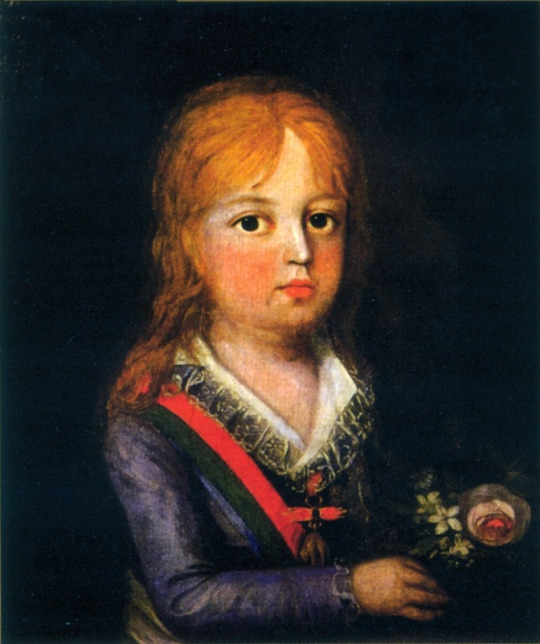
Through his father, Prince Dom João (later King Dom João VI), Pedro was a member of the House of Bragança and a grandson of King Dom Pedro III and Queen Dona (Lady) Maria I of Portugal, who were uncle and niece as well as husband and wife. His mother, Doña Carlota Joaquina, was the daughter of King Don Carlos IV of Spain. Pedro's parents had an unhappy marriage. Carlota Joaquina was an ambitious woman, who always sought to advance Spain's interests, even to the detriment of Portugal's. Reputedly unfaithful to her husband, she went as far as to plot his overthrow in league with dissatisfied Portuguese nobles.
As the second eldest son (though the fourth child), Pedro became his father's heir apparent and Prince of Beira upon the death of his elder brother Francisco António in 1801. Prince Dom João had been acting as regent on behalf of his mother, Queen Maria I, after she was declared incurably insane in 1792. By 1802, Pedro's parents were estranged; João lived in the Mafra National Palace and Carlota Joaquina in Ramalhão Palace.
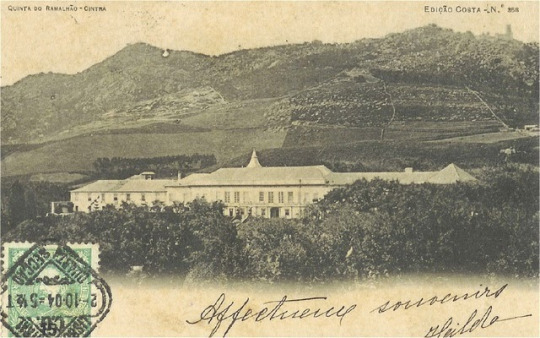
Pedro and his siblings resided in the Queluz Palace with their grandmother Maria I, far from their parents, whom they saw only during state occasions at Queluz.
In late November 1807, when Pedro was nine, the royal family escaped from Portugal as an invading French army sent by Napoleon approached Lisbon. Pedro and his family arrived in Rio de Janeiro, capital of Brazil, then Portugal's largest and wealthiest colony, in March 1808. During the voyage, Pedro read Virgil's Aeneid and conversed with the ship's crew, picking up navigational skills. In Brazil, after a brief stay in the City Palace, Pedro settled with his younger brother Miguel and their father in the Palace of São Cristóvão (Saint Christopher). Although never on intimate terms with his father, Pedro loved him and resented the constant humiliation his father suffered at the hands of Carlota Joaquina due to her extramarital affairs. As an adult, Pedro would openly call his mother, for whom he held only feelings of contempt, a "bitch". The early experiences of betrayal, coldness and neglect had a great impact on the formation of Pedro's character.
A modicum of stability during his childhood was provided by his aia (governess), Maria Genoveva do Rêgo e Matos, whom he loved as a mother, and by his aio (supervisor) friar António de Arrábida, who became his mentor. Both were in charge of Pedro's upbringing and attempted to furnish him with a suitable education. His instruction encompassed a broad array of subjects that included mathematics, political economy, logic, history and geography. He learned to speak and write not only in Portuguese, but also Latin and French. He could translate from English and understood German. Even later on, as an emperor, Pedro would devote at least two hours of each day to study and reading.
Despite the breadth of Pedro's instruction, his education proved lacking. Historian Otávio Tarquínio de Sousa said that Pedro "was without a shadow of doubt intelligent, quick-witted, [and] perspicacious." However, historian Roderick J. Barman relates that he was by nature "too ebullient, too erratic, and too emotional". He remained impulsive and never learned to exercise self-control or to assess the consequences of his decisions and adapt his outlook to changes in situations. His father never allowed anyone to discipline him.While Pedro's schedule dictated two hours of study each day, he sometimes circumvented the routine by dismissing his instructors in favor of activities that he found more interesting

The prince found fulfillment in activities that required physical skills, rather than in the classroom. At his father's Santa Cruz farm, Pedro trained unbroken horses, and became a fine horseman and an excellent farrier. He and his brother Miguel enjoyed mounted hunts over unfamiliar ground, through forests, and even at night or in inclement weather. He displayed a talent for drawing and handicrafts, applying himself to wood carving and furniture making. In addition, he had a taste for music, and under the guidance of Marcos Portugal
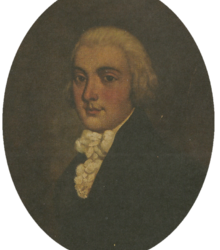
the prince became an able composer. He had a good singing voice, and was proficient with several musical instruments (including piano, flute and guitar), playing popular songs and dances. Pedro was a simple man, both in habits and in dealing with others. Except on solemn occasions when he donned court dress, his daily attire consisted of white cotton trousers, striped cotton jacket and a broad-brimmed straw hat, or a frock coat and a top hat in more formal situations. He would frequently take time to engage in conversation with people on the street, noting their concerns.
Pedro's character was marked by an energetic drive that bordered on hyperactivity. He was impetuous with a tendency to be domineering and short-tempered. Easily bored or distracted, in his personal life he entertained himself with dalliances with women in addition to his hunting and equestrian activities. His restless spirit compelled him to search for adventure, and, sometimes in disguise as a traveler, he frequented taverns in Rio de Janeiro's disreputable districts. He rarely drank alcohol, but was an incorrigible womanizer. His earliest known lasting affair was with a French dancer called Noémi Thierry, who had a stillborn child by him. Pedro's father, who had ascended the throne as João VI, sent Thierry away to avoid jeopardizing the prince's betrothal to Archduchess Maria Leopoldina, daughter of Emperor Franz I of Austria (formerly Franz II, Holy Roman Emperor).
On 13 May 1817, Pedro was married by proxy to Maria Leopoldina. When she arrived in Rio de Janeiro on 5 November, she immediately fell in love with Pedro, who was far more charming and attractive than she had been led to expect. After "years under a tropical sun, his complexion was still light, his cheeks rosy." The 19-year-old prince was handsome and a little above average in height, with bright dark eyes and dark brown hair. "His good appearance", said historian Neill Macaulay, "owed much to his bearing, proud and erect even at an awkward age, and his grooming, which was impeccable. Habitually neat and clean, he had taken to the Brazilian custom of bathing often." The Nuptial Mass, with the ratification of the vows previously taken by proxy, occurred the following day. Seven children resulted from this marriage: Maria (later Queen Dona Maria II of Portugal), Miguel, João, Januária, Paula, Francisca and Pedro (later Emperor Dom Pedro II of Brazil)

On 17 October 1820, news arrived that the military garrisons in Portugal had mutinied, leading to what became known as the Liberal Revolution of 1820. The military formed a provisional government, supplanting the regency appointed by João VI, and summoned the Cortes—the centuries-old Portuguese parliament, this time democratically elected with the aim of creating a national Constitution. Pedro was surprised when his father not only asked for his advice, but also decided to send him to Portugal to rule as regent on his behalf and to placate the revolutionaries. The prince was never educated to rule and had previously been allowed no participation in state affairs. The role that was his by birthright was instead filled by his elder sister Dona Maria Teresa: João VI had relied on her for advice, and it was she who had been given membership in the Council of State.
Pedro was regarded with suspicion by his father and by the king's close advisers, all of whom clung to the principles of absolute monarchy. By contrast, the prince was a well-known, staunch supporter of liberalism and of constitutional representative monarchy. He had read the works of Voltaire, Benjamin Constant, Gaetano Filangieri and Edmund Burke. Even his wife Maria Leopoldina remarked, "My husband, God help us, loves the new ideas." João VI postponed Pedro's departure for as long as possible, fearing that once he was in Portugal, he would be acclaimed king by the revolutionaries.

On 26 February 1821, Portuguese troops stationed in Rio de Janeiro mutinied. Neither João VI nor his government made any move against the mutinous units. Pedro decided to act on his own and rode to meet the rebels. He negotiated with them and convinced his father to accept their demands, which included naming a new cabinet and making an oath of obedience to the forthcoming Portuguese Constitution. On 21 April, the parish electors of Rio de Janeiro met at the Merchants' Exchange to elect their representatives to the Cortes. A small group of agitators seized the meeting and formed a revolutionary government. Again, João VI and his ministers remained passive, and the monarch was about to accept the revolutionaries' demands when Pedro took the initiative and sent army troops to re-establish order. Under pressure from the Cortes, João VI and his family departed for Portugal on 26 April, leaving behind Pedro and Maria Leopoldina. Two days before he embarked, the King warned his son: "Pedro, if Brazil breaks away, let it rather do so for you, who will respect me, than for one of those adventurers."
At the outset of his regency, Pedro promulgated decrees that guaranteed personal and property rights. He also reduced government expenditure and taxes.Even the revolutionaries arrested in the Merchants' Exchange incident were set free. On 5 June 1821, army troops under Portuguese lieutenant general Jorge Avilez (later Count of Avilez)

mutinied, demanding that Pedro should take an oath to uphold the Portuguese Constitution after it was enacted. The prince rode out alone to intervene with the mutineers. He calmly and resourcefully negotiated, winning the respect of the troops and succeeding in reducing the impact of their more unacceptable demands. The mutiny was a thinly veiled military coup d'état that sought to turn Pedro into a mere figurehead and transfer power to Avilez. The prince accepted the unsatisfactory outcome, but he also warned that it was the last time he would yield under pressure.
The continuing crisis reached a point of no return when the Cortes dissolved the central government in Rio de Janeiro and ordered Pedro's return. This was perceived by Brazilians as an attempt to subordinate their country again to Portugal—Brazil had not been a colony since 1815 and had the status of a kingdom. On 9 January 1822, Pedro was presented with a petition containing 8,000 signatures that begged him not to leave. He replied, "Since it is for the good of all and the general happiness of the Nation, I am willing. Tell the people that I am staying." Avilez again mutinied and tried to force Pedro's return to Portugal. This time the prince fought back, rallying the Brazilian troops (which had not joined the Portuguese in previous mutinies), militia units and armed civilians. Outnumbered, Avilez surrendered and was expelled from Brazil along with his troops.
During the next few months, Pedro attempted to maintain a semblance of unity with Portugal, but the final rupture was impending. Aided by an able minister, José Bonifácio de Andrada,
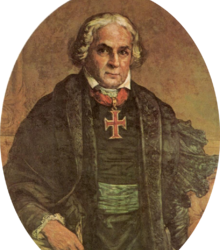
he searched for support outside Rio de Janeiro. The prince traveled to Minas Gerais in April and on to São Paulo in August. He was welcomed warmly in both Brazilian provinces, and the visits reinforced his authority. While returning from São Paulo, he received news sent on 7 September that the Cortes would not accept self-governance in Brazil and would punish all who disobeyed its orders. "Never one to eschew the most dramatic action on the immediate impulse", said Barman about the prince, he "required no more time for decision than the reading of the letters demanded." Pedro mounted his bay mare and, in front of his entourage and his Guard of Honor, said: "Friends, the Portuguese Cortes wished to enslave and persecute us. As of today our bonds are ended. By my blood, by my honor, by my God, I swear to bring about the independence of Brazil. Brazilians, let our watchword from this day forth be 'Independence or Death!'"
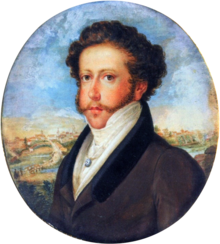
The prince was acclaimed Emperor Dom Pedro I on his 24th birthday, which coincided with the inauguration of the Empire of Brazil on 12 October. He was crowned on 1 December in what is today known as the Old Cathedral of Rio de Janeiro. His ascendancy did not immediately extend throughout Brazil's territories. He had to force the submission of several provinces in the northern, northeastern and southern regions, and the last Portuguese holdout units only surrendered in early 1824. Meanwhile, Pedro IV's relationship with Bonifácio deteriorated. The situation came to a head when Pedro IV, on the grounds of inappropriate conduct, dismissed Bonifácio. Bonifácio had used his position to harass, prosecute, arrest and even exile his political enemies. For months Bonifácio's enemies had worked to win over the Emperor. While Pedro IV was still Prince Regent, they had given him the title "Perpetual Defender of Brazil" on 13 May 1822. They also inducted him into Freemasonry on 2 August and later made him grand master on 7 October, replacing Bonifácio in that position.
The crisis between the monarch and his former minister was felt immediately within the Constituent and Legislative General Assembly, which had been elected for the purpose of drafting a Constitution. A member of the Constituent Assembly, Bonifácio resorted to demagoguery, alleging the existence of a major Portuguese conspiracy against Brazilian interests—insinuating that Pedro IV, who had been born in Portugal, was implicated. The Emperor became outraged by the invective directed at the loyalty of citizens who were of Portuguese birth and the hints that he was himself conflicted in his allegiance to Brazil. On 12 November 1823, Pedro IV ordered the dissolution of the Constituent Assembly and called for new elections. On the following day, he placed a newly established native Council of State in charge of composing a constitutional draft. Copies of the draft were sent to all town councils, and the vast majority voted in favor of its instant adoption as the Constitution of the Empire.
As a result of the highly centralized State created by the Constitution, rebellious elements in Ceará, Paraíba and Pernambuco attempted to secede from Brazil and unite in what became known as the Confederation of the Equator. Pedro IV unsuccessfully sought to avoid bloodshed by offering to placate the rebels. Angry, he said: "What did the insults from Pernambuco require? Surely a punishment, and such a punishment that it will serve as an example for the future." The rebels were never able to secure control over their provinces, and were easily suppressed. By late 1824, the rebellion was over. Sixteen rebels were tried and executed, while all others were pardoned by the Emperor.
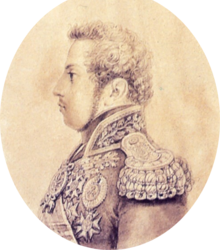
After long negotiations, Portugal signed a treaty with Brazil on 29 August 1825 in which it recognized Brazilian independence. Except for the recognition of independence, the treaty provisions were at Brazil's expense, including a demand for reparations to be paid to Portugal, with no other requirements of Portugal. Compensation was to be paid to all Portuguese citizens residing in Brazil for the losses they had experienced, such as properties which had been confiscated. João VI was also given the right to style himself emperor of Brazil. More humiliating was that the treaty implied that independence had been granted as a beneficent act of João VI, rather than having been compelled by the Brazilians through force of arms. Even worse, Great Britain was rewarded for its role in advancing the negotiations by the signing of a separate treaty in which its favorable commercial rights were renewed and by the signing of a convention in which Brazil agreed to abolish slave trade with Africa within four years. Both accords were severely harmful to Brazilian economic interests.
A few months later, the Emperor received word that his father had died on 10 March 1826, and that he had succeeded his father on the Portuguese throne as King Dom Pedro IV. Aware that a reunion of Brazil and Portugal would be unacceptable to the people of both nations, he hastily abdicated the crown of Portugal on 2 May in favor of his eldest daughter, who became Queen Dona Maria II. His abdication was conditional: Portugal was required to accept the Constitution which he had drafted and Maria II was to marry his brother Miguel. Regardless of the abdication, Pedro IV continued to act as an absentee king of Portugal and interceded in its diplomatic matters, as well as in internal affairs, such as making appointments. He found it difficult, at the very least, to keep his position as Brazilian emperor separate from his obligations to protect his daughter's interests in Portugal.
Miguel feigned compliance with Pedro IV's plans. As soon as he was declared regent in early 1828, and backed by Carlota Joaquina, he abrogated the Constitution and, supported by those Portuguese in favor of absolutism, was acclaimed King Dom Miguel I. As painful as was his beloved brother's betrayal, Pedro IV also endured the defection of his surviving sisters, Maria Teresa, Maria Francisca, Isabel Maria and Maria da Assunção, to Miguel I's faction. Only his youngest sister, Ana de Jesus, remained faithful to him, and she later traveled to Rio de Janeiro to be close to him. Consumed by hatred and beginning to believe rumors that Miguel I had murdered their father, Pedro IV turned his focus on Portugal and tried in vain to garner international support for Maria II's rights
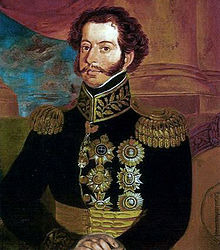
Backed by the United Provinces of the Río de la Plata (present-day Argentina), a small band declared Brazil's southernmost province of Cisplatina to be independent in April 1825.The Brazilian government at first perceived the secession attempt as a minor uprising. It took months before a greater threat posed by the involvement of the United Provinces, which expected to annex Cisplatina, caused serious concern. In retaliation, the Empire declared war in December, triggering the Cisplatine War. The Emperor traveled to Bahia province (located in northeastern Brazil) in February 1826, taking along his wife and daughter Maria. The Emperor was warmly welcomed by the inhabitants of Bahia.The trip was planned to generate support for the war-effort.

The imperial entourage included Domitila de Castro (then-Viscountess and later Marchioness of Santos),
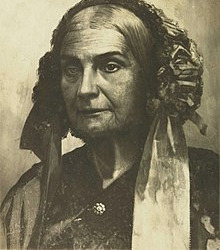
who had been Pedro IV's mistress since their first meeting in 1822. Although he had never been faithful to Maria Leopoldina, he had previously been careful to conceal his sexual escapades with other women. However, his infatuation for his new lover "had become both blatant and limitless", while his wife endured slights and became the object of gossip. Pedro IV was increasingly rude and mean toward Maria Leopoldina, left her short of funds, prohibited her from leaving the palace and forced her to endure Domitila's presence as her lady-in-waiting. In the meantime, his lover took advantage by advancing her interests, as well as those of her family and friends. Those seeking favors or to promote projects increasingly sought her help, bypassing the normal, legal channels.
On 24 November 1826, Pedro IV sailed from Rio de Janeiro to São José in the province of Santa Catarina. From there he rode to Porto Alegre, capital of the province of Rio Grande do Sul, where the main army was stationed. Upon his arrival on 7 December, the Emperor found the military conditions to be much worse than previous reports had led him to expect. He "reacted with his customary energy: he passed a flurry of orders, fired reputed grafters and incompetents, fraternized with the troops, and generally shook up military and civilian administration." He was already on his way back to Rio de Janeiro when he was told that Maria Leopoldina had died following a miscarriage. Unfounded rumors soon spread that purported that she had died after being physically assaulted by Pedro IV. Meanwhile, the war continued on with no conclusion in sight. Pedro IV relinquished Cisplatina in August 1828, and the province became the independent nation of Uruguay.
After his wife's death, Pedro IV realized how miserably he had treated her, and his relationship with Domitila began to crumble. Maria Leopoldina, unlike his mistress, was popular, honest and loved him without expecting anything in return. The Emperor greatly missed her, and even his obsession with Domitila failed to overcome his sense of loss and regret. One day Domitila found him weeping on the floor and embracing a portrait of his deceased wife, whose sad-looking ghost Pedro IV claimed to have seen. Later on, the Emperor left the bed he shared with Domitila and shouted: "Get off of me! I know I live an unworthy life of a sovereign. The thought of the Empress does not leave me."He did not forget his children, orphaned of their mother, and was observed on more than one occasion holding his son, the young Pedro, in his arms and saying: "Poor boy, you are the most unhappy prince in the world."
At the insistence of Pedro IV, Domitila departed from Rio de Janeiro on 27 June 1828. He had resolved to marry again and to become a better person. He even tried to persuade his father-in-law of his sincerity, by claiming in a letter "that all my wickedness is over, that I shall not again fall into those errors into which I have fallen, which I regret and have asked God for forgiveness".Franz I was less than convinced. The Austrian emperor, deeply offended by the conduct his daughter endured, withdrew his support for Brazilian concerns and frustrated Pedro IV's Portuguese interests. Because of Pedro IV's bad reputation in Europe, owing to his past behavior, princesses from several nations declined his proposals of marriage one after another. His pride thus wounded, he allowed his mistress to return, which she did on 29 April 1829 after having been away nearly a year.
However, once he learned that a betrothal had finally been arranged, the Emperor ended his relationship to Domitila. She returned to her native province of São Paulo on 27 August, where she remained. Days earlier, on 2 August, the Emperor had been married by proxy to Amélie of Leuchtenberg. He was stunned by her beauty after meeting her in person. The vows previously made by proxy were ratified in a Nuptial Mass on 17 October. Amélie was kind and loving to his children and provided a much needed sense of normality to both his family and the general public. After Domitila's banishment from court, the vow the Emperor made to alter his behavior proved to be sincere. He had no more affairs and remained faithful to his spouse. In an attempt to mitigate and move beyond other past misdeeds, he made peace with José Bonifácio, his former minister and mentor.
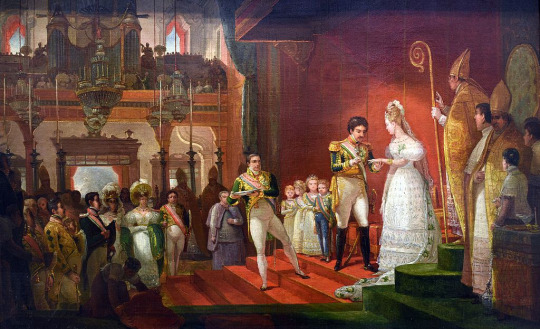
Since the days of the Constituent Assembly in 1823, and with renewed vigor in 1826 with the opening of the General Assembly (the Brazilian parliament), there had been an ideological struggle over the balance of powers wielded by the emperor and legislature in governance. On one side were those who shared Pedro IV's views, politicians who believed that the monarch should be free to choose ministers, national policies and the direction of government. In opposition were those, then known as the Liberal Party, who believed that cabinets should have the power to set the government's course and should consist of deputies drawn from the majority party who were accountable to the parliament. Strictly speaking, both the party that supported Pedro IV's government and the Liberal Party advocated Liberalism, and thus constitutional monarchy.
Regardless of Pedro IV's failures as a ruler, he respected the Constitution: he did not tamper with elections or countenance vote rigging, refuse to sign acts ratified by the government, or impose any restrictions on freedom of speech. Although within his prerogative, he did not dissolve the Chamber of Deputies and call for new elections when it disagreed with his aims or postpone seating the legislature. Liberal newspapers and pamphlets seized on Pedro IV's Portuguese birth in support of both valid accusations (e.g., that much of his energy was directed toward affairs concerning Portugal) and false charges (e.g., that he was involved in plots to suppress the Constitution and to reunite Brazil and Portugal).To the Liberals, the Emperor's Portuguese-born friends who were part of the Imperial court, including Francisco Gomes da Silva who was nicknamed "the Buffoon", were part of these conspiracies and formed a "secret cabinet". None of these figures exhibited interest in such issues, and whatever interests they may have shared, there was no palace cabal plotting to abrogate the Constitution or to bring Brazil back under Portugal's control.
Another source of criticism by the Liberals involved Pedro IV's abolitionist views. The Emperor had indeed conceived a gradual process for eliminating slavery. However, the constitutional power to enact legislation was in the hands of the Assembly, which was dominated by slave-owning landholders who could thus thwart any attempt at abolition.The Emperor opted to try persuasion by moral example, setting up his estate at Santa Cruz as a model by granting land to his freed slaves there. Pedro IV also professed other advanced ideas. When he declared his intention to remain in Brazil on 9 January 1822 and the populace sought to accord him the honor of unhitching the horses and pulling his carriage themselves, the then-Prince Regent refused. His reply was a simultaneous denunciation of the divine right of kings, of nobility's supposedly superior blood and of racism: "It grieves me to see my fellow humans giving a man tributes appropriate for the divinity, I know that my blood is the same color as that of the Negroes."
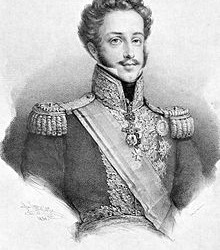
The Emperor's efforts to appease the Liberal Party resulted in very important changes. He supported an 1827 law that established ministerial responsibility. On 19 March 1831, he named a cabinet formed by politicians drawn from the opposition, allowing a greater role for the parliament in the government. Lastly, he offered positions in Europe to Francisco Gomes and another Portuguese-born friend to extinguish rumors of a "secret cabinet".To his dismay, his palliative measures did not stop the continuous attacks from the Liberal side upon his government and his foreign birth. Frustrated by their intransigence, he became unwilling to deal with his deteriorating political situation.
Meanwhile, Portuguese exiles campaigned to convince him to give up on Brazil and instead devote his energies to the fight for his daughter's claim to Portugal's crown. According to Roderick J. Barman, "[in] an emergency the Emperor's abilities shone forth—he became cool in nerve, resourceful and steadfast in action. Life as a constitutional monarch, full of tedium, caution, and conciliation, ran against the essence of his character." On the other hand, the historian remarked, he "found in his daughter's case everything that appealed most to his character. By going to Portugal he could champion the oppressed, display his chivalry and self-denial, uphold constitutional rule, and enjoy the freedom of action he craved."
The idea of abdicating and returning to Portugal took root in his mind, and, beginning in early 1829, he talked about it frequently. An opportunity soon appeared to act upon the notion. Radicals within the Liberal Party rallied street gangs to harass the Portuguese community in Rio de Janeiro. On 11 March 1831, in what became known as the "noite das garrafadas" (night of the broken bottles), the Portuguese retaliated and turmoil gripped the streets of the national capital. On 5 April, Pedro IV fired the Liberal cabinet, which had only been in power since 19 March, for its incompetence in restoring order. A large crowd, incited by the radicals, gathered in Rio de Janeiro downtown on the afternoon of 6 April and demanded the immediate restoration of the fallen cabinet. The Emperor's reply was: "I will do everything for the people and nothing [compelled] by the people." Sometime after nightfall, army troops, including his guard, deserted him and joined the protests. Only then did he realize how isolated and detached from Brazilian affairs he had become, and to everyone's surprise, he abdicated at approximately 03:00 on 7 April. Upon delivering the abdication document to a messenger, he said: "Here you have my act of abdication, I'm returning to Europe and leaving a country that I loved very much, and still love."
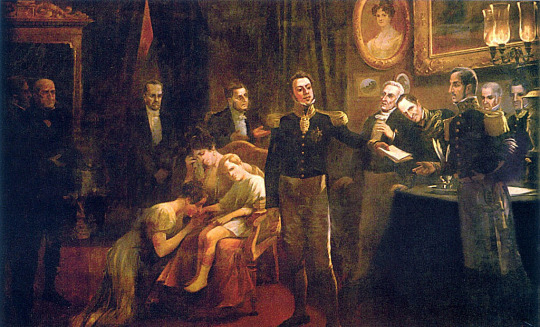
At dawn on the morning of 7 April, Pedro, his wife, and others, including his daughter Maria II and his sister Ana de Jesus, were taken on board the British warship HMS Warspite.
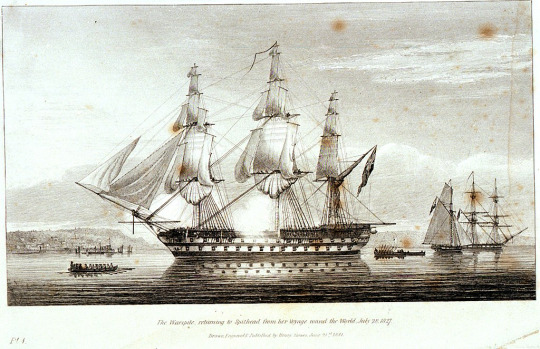
The vessel remained at anchor off Rio de Janeiro, and, on 13 April, the former emperor transferred to and departed for Europe aboard HMS Volage. He arrived in Cherbourg-Octeville, France, on 10 June. During the next few months, he shuttled between France and Great Britain. He was warmly welcomed, but received no actual support from either government to restore his daughter's throne. Finding himself in an awkward situation because he held no official status in either the Brazilian Imperial House or in the Portuguese Royal House, Pedro assumed the title of Duke of Bragança on 15 June, a position that once had been his as heir to Portugal's crown. Although the title should have belonged to Maria II's heir, which he certainly was not, his claim was met with general recognition. On 1 December, his only daughter by Amélie, Maria Amélia, was born in Paris.

He did not forget his children left in Brazil. He wrote poignant letters to each of them, conveying how greatly he missed them and repeatedly asking them to seriously attend to their educations. Shortly before his abdication, Pedro had told his son and successor: "I intend that my brother Miguel and I will be the last badly educated of the Bragança family". Charles Napier, a naval commander who fought under Pedro's banner in the 1830′s, remarked that "his good qualities were his own; his bad owing to want of education; and no man was more sensible of that defect than himself." His letters to Pedro II were often couched in language beyond the boy's reading level, and historians have assumed such passages were chiefly intended as advice that the young monarch might eventually consult upon reaching adulthood.
While in Paris, the Duke of Bragança met and befriended Gilbert du Motier, Marquis of Lafayette,

a veteran of the American Revolutionary War who became one of his staunchest supporters. With limited funds, Pedro organized a small army composed of Portuguese liberals, like Almeida Garrett

and Alexandre Herculano,
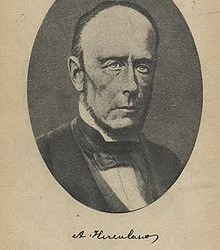
foreign mercenaries and volunteers such as Lafayette's grandson, Adrien Jules de Lasteyrie. On 25 January 1832, Pedro bade farewell to his family, Lafayette and around two hundred well-wishers. He knelt before Maria II and said: "My lady, here is a Portuguese general who will uphold your rights and restore your crown." In tears, his daughter embraced him. Pedro and his army sailed to the Atlantic archipelago of the Azores, the only Portuguese territory that had remained loyal to his daughter. After a few months of final preparations they embarked for mainland Portugal, entering the city of Porto unopposed on 9 July. His brother's troops moved to encircle the city, beginning a siege that lasted for more than a year.
In early 1833, while besieged in Porto, Pedro received news from Brazil of his daughter Paula's impending death. Months later, in September, he met with Antônio Carlos de Andrada, a brother of Bonifácio who had come from Brazil. As a representative of the Restorationist Party, Antônio Carlos asked the Duke of Bragança to return to Brazil and rule his former empire as regent during his son's minority. Pedro realized that the Restorationists wanted to use him as a tool to facilitate their own rise to power, and frustrated Antônio Carlos by making several demands, to ascertain whether the Brazilian people, and not merely a faction, truly wanted him back. He insisted that any request to return as regent be constitutionally valid. The people's will would have to be conveyed through their local representatives and his appointment approved by the General Assembly. Only then, and "upon the presentation of a petition to him in Portugal by an official delegation of the Brazilian parliament" would he consider accepting.
During the war, the Duke of Bragança mounted cannons, dug trenches, tended the wounded, ate among the rank and file and fought under heavy fire as men next to him were shot or blown to pieces. His cause was nearly lost until he took the risky step of dividing his forces and sending a portion to launch an amphibious attack on southern Portugal. The Algarve region fell to the expedition, which then marched north straight for Lisbon, which capitulated on 24 July. Pedro proceeded to subdue the remainder of the country, but just when the conflict looked to be winding down to a conclusion, his Spanish uncle Don Carlos, who was attempting to seize the crown of his niece Doña Isabel II,
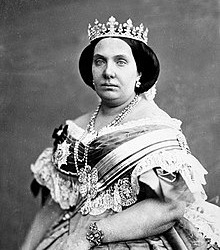
intervened. In this wider conflict that engulfed the entire Iberian Peninsula, the First Carlist War, the Duke of Bragança allied with liberal Spanish armies loyal to Isabel II and defeated both Miguel I and Carlos. A peace accord was reached on 26 May 1834.
Except for bouts of epilepsy that manifested in seizures every few years, Pedro had always enjoyed robust health. The war, however, undermined his constitution and by 1834 he was dying of tuberculosis. He was confined to his bed in Queluz Royal Palace from 10 September. Pedro dictated an open letter to the Brazilians, in which he begged that a gradual abolition of slavery be adopted. He warned them: "Slavery is an evil, and an attack against the rights and dignity of the human species, but its consequences are less harmful to those who suffer in captivity than to the Nation whose laws allow slavery. It is a cancer that devours its morality." After a long and painful illness, Pedro died at 14:30 on 24 September 1834.
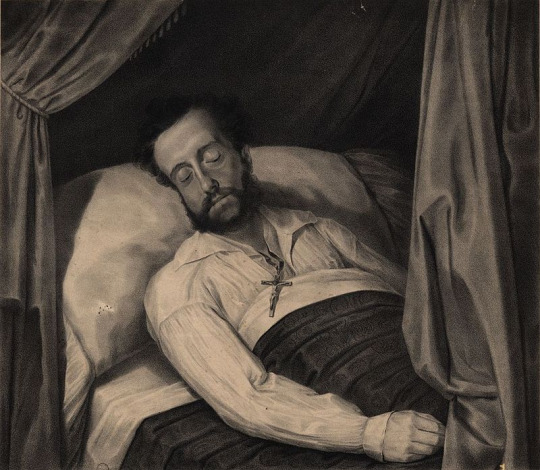
As he had requested, his heart was placed in Porto's Lapa Church and his body was interred in the Royal Pantheon of the House of Braganza.
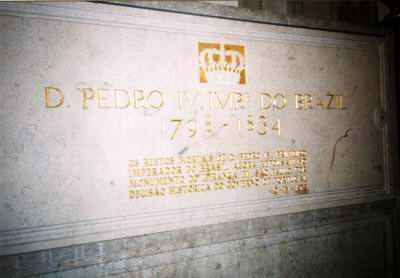
The news of his death arrived in Rio de Janeiro on 20 November, but his children were informed only after 2 December. Bonifácio, who had been removed from his position as their guardian, wrote to Pedro II and his sisters: "Dom Pedro did not die. Only ordinary men die, not heroes."
Upon the death of Pedro IV, the then-powerful Restorationist Party vanished overnight. A fair assessment of the former monarch became possible once the threat of his return to power was removed. Evaristo da Veiga, one of his worst critics as well as a leader in the Liberal Party, left a statement which, according to historian Otávio Tarquínio de Sousa, became the prevailing view thereafter: "the former emperor of Brazil was not a prince of ordinary measure ... and Providence has made him a powerful instrument of liberation, both in Brazil and in Portugal. If we [Brazilians] exist as a body in a free Nation, if our land was not ripped apart into small enemy republics, where only anarchy and military spirit predominated, we owe much to the resolution he took in remaining among us, in making the first shout for our Independence." He continued: "Portugal, if it was freed from the darkest and demeaning tyranny ... if it enjoys the benefits brought by representative government to learned peoples, it owes it to D[om]. Pedro de Alcântara, whose fatigues, sufferings and sacrifices for the Portuguese cause has earned him in high degree the tribute of national gratitude."
John Armitage, who lived in Brazil during the latter half of Pedro IV's reign, remarked that "even the errors of the Monarch have been attended with great benefit through their influence on the affairs of the mother country. Had he governed with more wisdom it would have been well for the land of his adoption, yet, perhaps, unfortunate for humanity." Armitage added that like "the late Emperor of the French, he was also a child of destiny, or rather, an instrument in the hands of an all-seeing and beneficent Providence for the furtherance of great and inscrutable ends. In the old as in the new world he was henceforth fated to become the instrument of further revolutions, and ere the close of his brilliant but ephemeral career in the land of his fathers, to atone amply for the errors and follies of his former life, by his chivalrous and heroic devotion in the cause of civil and religious freedom."
In 1972, on the 150th anniversary of Brazilian independence, Pedro IV's remains (though not his heart) were brought to Brazil—as he had requested in his will—accompanied by much fanfare and with honors due to a head of state. His remains were reinterred in the Monument to the Independence of Brazil, along with those of Maria Leopoldina and Amélie, in the city of São Paulo.

Years later, Neill Macaulay said that "[c]riticism of Dom Pedro was freely expressed and often vehement; it prompted him to abdicate two thrones. His tolerance of public criticism and his willingness to relinquish power set Dom Pedro apart from his absolutist predecessors and from the rulers of today's coercive states, whose lifetime tenure is as secure as that of the kings of old." Macaulay affirmed that "[s]uccessful liberal leaders like Dom Pedro may be honored with an occasional stone or bronze monument, but their portraits, four stories high, do not shape public buildings; their pictures are not borne in parades of hundreds of thousands of uniformed marchers; no '-isms' attach to their names.”
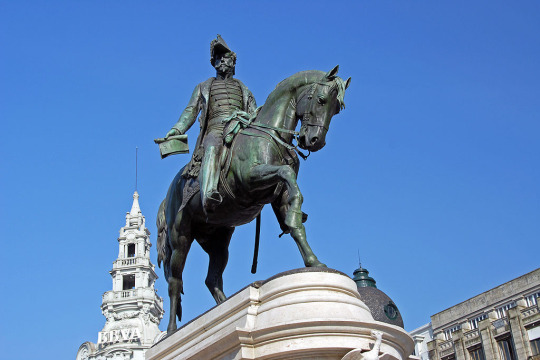
King Pedro IV had several children:
By Maria Leopoldina of Austria (22 January 1797 – 11 December 1826; married by proxy on 13 May 1817):
Maria II of Portugal (4 April 1819 –15 November 1853) Queen of Portugal from 1826 until 1853. Maria II's first husband, Auguste de Beauharnais, 2nd Duke of Leuchtenberg, died a few months after the marriage. Her second husband was Prince Ferdinand of Saxe-Coburg and Gotha, who became King Dom Fernando II after the birth of their first child. She had eleven children from this marriage. Maria II was heir to her brother Pedro II as Princess Imperial until her exclusion from the Brazilian line of succession by law no. 91 of 30 October 1835.
Miguel, Prince of Beira (26 April 1820) Prince of Beira from birth to his death.
João Carlos, Prince of Beira (6 March 1821 – 4 February 1822) Prince of Beira from birth to his death.
Princess Januária of Brazil (11 March 1822 – 13 March 1901) Married Prince Luigi, Count of Aquila, son of Don Francesco I, King of the Two Sicilies. She had four children from this marriage. Officially recognized as an Infanta of Portugal on 4 June 1822, she was later considered excluded from the Portuguese line of succession after Brazil became independent.
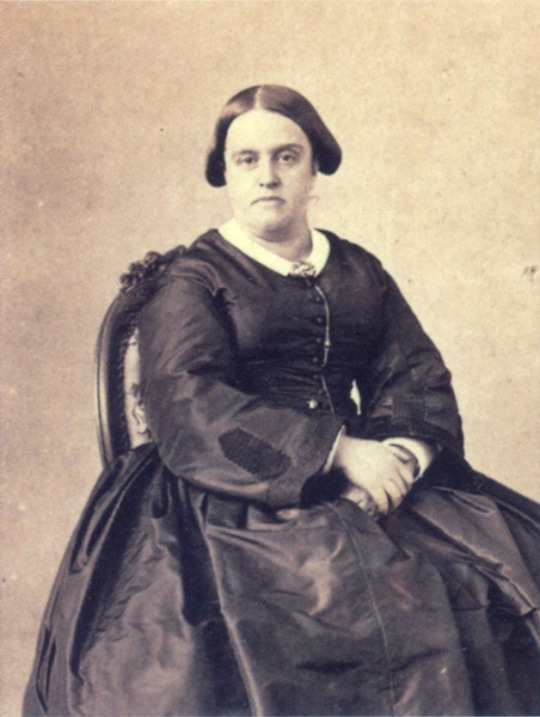
Princess Paula of Brazil (17 February 1823 – 16 January 1833) She died age 9, probably of meningitis. Born in Brazil after its independence, Paula was excluded from the Portuguese line of succession.
Princess Francisca of Brazil (2 August 1824 – 27 March 1898) Married Prince François, Prince of Joinville, son of Louis Philippe I, King of the French. She had three children from this marriage. Born in Brazil after its independence, Francisca was excluded from the Portuguese line of succession.
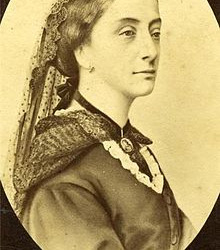
Pedro II of Brazil (2 December 1825 –5 December 1891) Emperor of Brazil from 1831 until 1889. He was married to Teresa Cristina of the Two Sicilies, daughter of Don Francesco I, King of the Two Sicilies. He had four children from this marriage. Born in Brazil after its independence, Pedro II was excluded from the Portuguese line of succession and did not become King Dom Pedro V of Portugal upon his father's abdication.

By Amélie of Leuchtenberg (31 July 1812 – 26 January 1873; married by proxy on 2 August 1829):
Princess Maria Amélia of Brazil (1 December 1831 – 4 February 1853) She lived her entire life in Europe and never visited Brazil. Maria Amélia was betrothed to Archduke Maximilian, later Emperor Don Maximiliano I of Mexico, but died before her marriage. Born years after her father abdicated the Portuguese crown, Maria Amélia was never in the line of succession to the Portuguese throne.
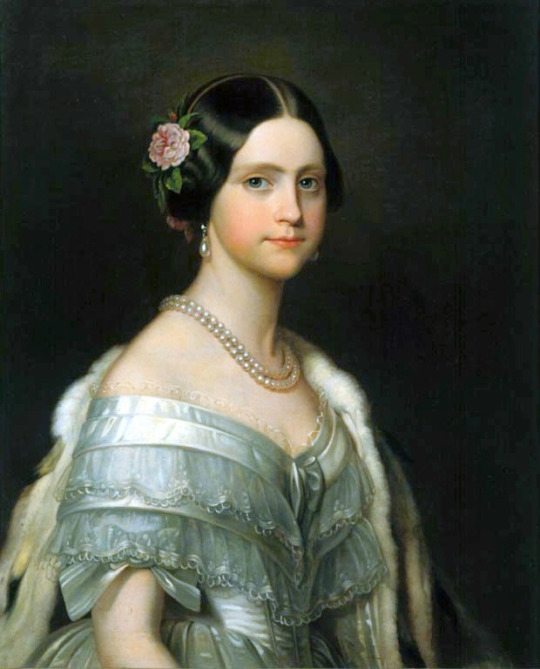
By Domitila de Castro, Marchioness of Santos (27 December 1797 – 3 November 1867):
Isabel Maria de Alcântara Brasileira (23 May 1824 – 3 November 1898) She was the only child of Pedro IV born out of wedlock who was officially legitimized by him. On 24 May 1826, Isabel Maria was given the title of "Duchess of Goiás", the style of Highness and the right to use the honorific "Dona" (Lady). She was the first person to hold the rank of duke in the Empire of Brazil. These honors did not confer on her the status of Brazilian princess or place her in the line of succession. In his will, Pedro IV gave her a share of his estate. She later lost her Brazilian title and honors upon her 17 April 1843 marriage to a foreigner, Ernst Fischler von Treuberg, Count of Treuberg.
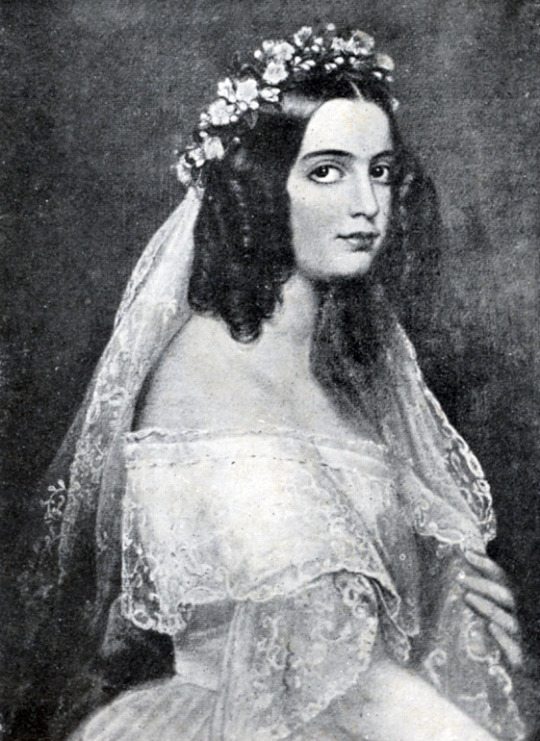
Pedro de Alcântara Brasileiro (7 December 1825 – 27 December 1825) Pedro IV seems to have considered giving him the title of "Duke of São Paulo", which was never realized due to the child's early death.
Maria Isabel de Alcântara Brasileira (13 August 1827 – 25 October 1828) Pedro IV considered giving her the title of "Duchess of Ceará", the style of Highness and the right to use the honorific "Dona" (Lady). This was never put into effect due to her early death. Nonetheless, it is quite common to see many sources calling her "Duchess of Ceará", even though "there is no record of the registry of her title in official books, which is also not mentioned in papers related to her funeral".
Maria Isabel de Alcântara Brasileira (28 February 1830 – 13 September 1896) Countess of Iguaçu through marriage in 1848 to Pedro Caldeira Brant, son of Felisberto Caldeira Brant, Marquis of Barbacena. She was never given any titles by her father due to his marriage to Amélie. However, Pedro IV acknowledged her as his daughter in his will, but gave her no share of his estate, except for a request that his widow aid in her education and upbringing.
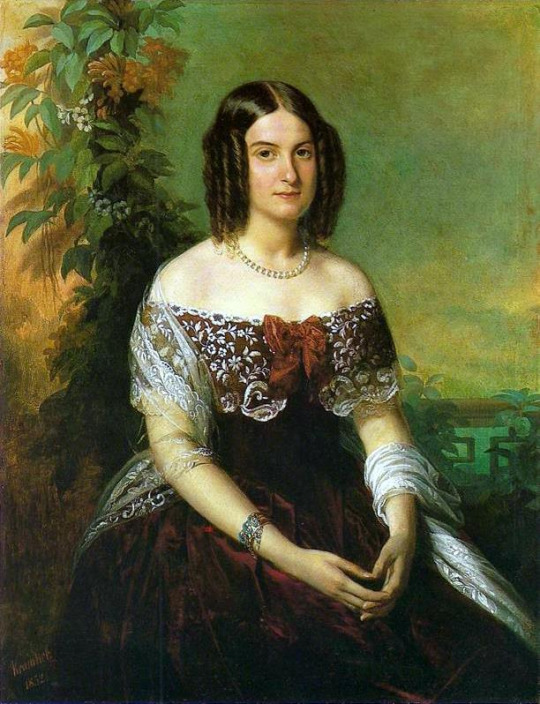
By Maria Benedita, Baroness of Sorocaba (18 December 1792 – 5 March 1857):
Rodrigo Delfim Pereira (4 November 1823 –31 January 1891) In his will, Pedro IV acknowledged him as his son and gave him a share of his estate. Rodrigo Delfim Pereira became a Brazilian diplomat and lived most of his life in Europe.
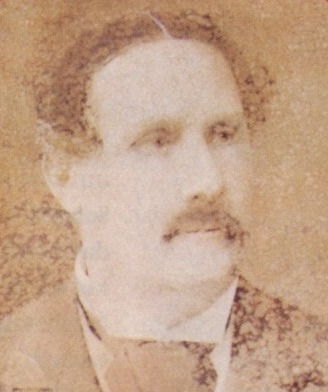
By Henriette Josephine Clemence Saisset:
Pedro de Alcântara Brasileiro born 28 August 1829. In his will, Pedro IV acknowledged him as his son and gave him a share of his estate. Pedro de Alcântara Brasileiro had a son, a French navy officer, among other descendants.
11 notes
·
View notes
Text
Here's 15 questions to answer before tagging 15 people
tagged by@asterleas (🖤) I’m tagging @artsiwych, @sidhedraoi, @tzeentchs-secretary, @alice-on-elm-street, @m00nw1tch, @shecryptid, @darkravenrose, @knotchristine, @kaitomo, @snakewife, @bluesmileeface, @gotmedancing, @sadnsavannah, @odettavonkasek and @naturedm!
Are you named after anyone? Nope, Theodora but everyone calls me Teddy.
When was the last time you cried? I cry like...all the time, honestly. The last time was last night, when I was thinking about capitalism. I wish I was kidding.
Do you have kids? Nope.
Do you use sarcasm a lot? Constantly. It’s a defense mechanism.
What’s the first thing you notice about people? It’s cliche, but probably eyes. I have a weird intuition about peoples’ eyes, when I was little I used to tell my grandmother that “I don’t trust their eyes” or “they have mean eyes” and I was usually right.
What’s your eye colour? Honey brown.
Scary movie or happy ending? Scary movies, all the way!
Any special talent? I’m a chess player of course, a writer, and a mediocre violinist.
What country were you born in? https://www.youtube.com/watch?v=8z4ECBVWKao
What are your hobbies? Reading, writing, playing chess and the violin, classical music in general, researching weird/creepy/paranormal stuff, podcasts, beadwork and altering jackets and sweaters with all kinds of weird shit.
Do you have any pets? I keep tarantulas, and have for years. Currently I have three - a bottle blue named Sara, a rose hair named Charlie, and a Togo Starburst named Julian. I’m obsessed with spiders of all kinds.
What sports do you play/have you played? I did martial arts as a kid, but I’ve never been the most athletic person.
How tall are you? 5′6″
Favourite subject(s) in school? English and science, I’m a huge physics nerd.
Dream job? M.E or morgue tech, but if we’re really going for pipe dreams I’d love something like Moulin Rouge dancer or Cirque Du Soleil performer. Something dreamy and aesthetic heavy that would allow me to travel a lot.
5 notes
·
View notes
Text
JANUARY 2020 BC ENTERTAINMENT SCHEDULES & REVIEW
Members may earn 3 points each (up to 6 points) for writing, by the end of February 7 KST:
A solo para of 400+ words based on their monthly schedule (does not count toward your monthly limit).
A thread of six posts (three per participant, including the starter) based on the monthly schedule.
Threads and solos do not have to take place directly during an important date listed on the schedule, but must be related to what the muse is mentioned to be doing in the paragraph explaining their schedule/the company’s schedule for the month and/or their thoughts on the mentioned activities or lack thereof.
These schedules may be updated throughout the month if new information needs to be added.
Reminder: December schedule posts are due by the end of January 7 KST.
Overall Company
With the new year comes new plans and new opportunities. This month will be busy with housekeeping and 2020 preparations on the part of PR teams, management, and the company’s groups and solo artists will be informed of the general direction BC is focusing them on for the year. This meeting will make it apparent BC is heavily banking on the success of their new sub-unit with Dimensions, CHAMPION, and is prioritizing tour profits from CHARM and WISH. Seollal grants all artist three days off unless they have other individual activities, but, in the middle of such a busy month, it may not mean much.
Important dates:
January 14: Meeting for company artists and those who work directly with them (managers, PR, etc.). During this meeting, BC Entertainment’s mission statements and overall plans for 2020 will be delivered. Like last year, Kim Byungchul will be absent from this meeting.
January 24-26: Seollal break (no activities save for specific voluntary individual schedules).
diet tw // Various dates: As is tradition every January for BC, all groups and soloists will meet with company nutritionists, personal trainers, and PR teams to go over outlines for diet and exercise plans for the new year, as well as PR plans for the year.
BC Soloist 1
After getting the first day of the new year off, final month preparations for her first comeback begin in the lead up to its release at the very end of the month. It’s not too different from the preparations for her debut, with the usual MV filming and teaser photo shoots. This comeback is about shaping her image as more than someone with a catchy summer song. In her first yearly briefing with management, she’ll learn they’ve allotted time for two comebacks into her schedule this year, the one this month and another mid-year to capitalize on the success she had with a summer release for her debut. Her team will be focusing on getting her name out by booking her festival performances throughout the year, since her performance skills are a main selling point.
Important dates:
January 12: “Roller Coaster” MV filming.
January 13: Comeback teaser photos shoot.
January 27: “Roller Coaster” dance practice and “Offset” dance practice filming.
January 29: Release of “Roller Coaster” & Offset showcase, promotions continue until February 29.
Decipher
Their comeback may not have been a roaring success, but it wasn’t really meant to be. BC can make money off of Decipher’s fans without giving them constant promotions, and all of the departments making those kinds of decisions have known this for a while. During their briefing with management, the members will be informed of plans for two Korean comebacks in addition to CHAMPION’s debut featuring their youngest member. They’ll also be making a Japanese comeback in March, which they’ll begin working on this month by doing studio recording of the songs.
Important dates:
January 16: End of music show promotions.
↳ Decipher R & V
No schedules for the month.
Important dates:
N/A.
↳ CHAMPION
Now that the members have had time to settle into the idea of their new sub-unit, this month, they’ll familiarize themselves with the songs that will be on their debut mini-album and begin recording them in the studio. All of the recording will be done in the studios at Dimensions Entertainment building, as the group is working with their team musically instead of BC’s. Only two songs on the album, “Jopping” and “I Can’t Stand The Rain”, will feature all members, with the other three featuring select members deemed most fitting for the specific song:
“2 Fast” - Decipher’s maknae/main dancer/lead vocal, Knight’s main vocal 2, Unity’s lead rapper/vocal, Unity’s main dancer/rapper/vocal
“Super Car” - Decipher’s/maknae/main dancer/lead vocal, Knight’s main vocal 2, Unity’s leader/main rapper/lead dancer/vocal, Unity’s main dancer/rapper/vocal, Unity’s lead rapper/vocal
“No Manners” - Decipher’s maknae/main dancer/lead vocal, Knight’s main dancer/vocal/rapper, Unity’s leader/main rapper/lead dancer/vocal, Unity’s main dancer/rapper/vocal
Important dates:
N/A
BEE
They continue their attendance at awards shows through the month thanks to how well “Something” did, and they also hold their Japanese Winter Party concerts. BEE has never focused much on the Japanese market, so it’s a rare chance to meet with their fans in the country. For their approaching comeback, now that the mini-album is recorded, they’ll be learning the choreography this month. Because choreography with the skirt is incorporated, they’ll learn the choreography with similar skirts to what they’ll be wearing onstage. During their meeting with management, the members will learn that BC plans for them to have a second comeback in late summer as well as hold another concert around that time. They’ll also learn of plans for a sub-unit with the leader/main vocal/rapper and the main rapper/main dancer, though preparation for the sub-unit’s debut will not begin just yet.
Important dates:
January 4: Performance at Golden Disc Awards Day One at Gocheok Sky Dome in Seoul, South Korea (also attending: WISH and Lucid).
January 8: Performance (0:00 - 3:06 of this performance, then this whole performance) at Gaon Chart Music Awards at Jamsil Arena in Seoul, South Korea (also attending: Alien, Lucid, and Femme Fatale).
January 18: BEE Winter Party concert at Zepp DiverCity in Tokyo, Japan.
January 19: BEE Winter Party concert at Zepp DiverCity in Tokyo, Japan.
January 30: Performance at Seoul Music Awards at Gocheok Sky Dome in Seoul, South Korea (also attending: WISH, Alien, Lucid, Fuse).
Knight
Knight takes a break from their tour in order to promote their new comeback with month. Earlier in the promotion period, they’ll be back in the studio to record an English version of their title track (admin note: since Zuho is not in the English version, the main rapper/vocal will have the same lines as in the Korean version: 1:26-1:30) and then filming a performance video for it that will release after promotions end. They’re booked to film two online content videos this comeback round, a classic Relay Dance video and a Mafia Dance video where the members will have to figure out that main vocal 1 and main dancer/vocal/rapper are doing the choreography listening to different music from the rest (admin note: assume the same elimination order/results as the video if writing about this for consistency, but liberties can be taken with other details). Their meeting with management will reveal that they won’t have another comeback until the fourth quarter of the year in order for BC to focus on CHAMPION’s promotions with the members involved. They’ll finish off their tour with North America stops soon and a Seoul encore and a sub-unit involving the group’s main rapper/vocal and the maknae/lead dancer/rapper is mentioned in passing without any official confirmation yet, but it seems, overall, Knight as a group is on the back burner this year.
Important dates:
January 8: Release of “Enough” & Narcissus showcase, promotions continue until February 8.
January 9: M2 Relay Dance video filming.
January 13: Enough (English Ver.) Performance video filming.
January 18: Dingo Music Mafia Dance video and “Enough” MOVE REC Performance video filming.
↳ White Knight
No schedules for the month.
Important dates:
N/A
↳ CHAMPION
Now that the members have had time to settle into the idea of their new sub-unit,, this month, they’ll familiarize themselves with the songs that will be on their debut mini-album and begin recording them in the studio. All of the recording will be done in the studios at Dimensions Entertainment building, as the group is working with their team musically instead of BC’s. Only two songs on the album, “Jopping” and “I Can’t Stand The Rain”, will feature all members, with the other three featuring select members deemed most fitting for the specific song:
“2 Fast” - Decipher’s maknae/main dancer/lead vocal, Knight’s main vocal 2, Unity’s lead rapper/vocal, Unity’s main dancer/rapper/vocal
“Super Car” - Decipher’s/maknae/main dancer/lead vocal, Knight’s main vocal 2, Unity’s leader/main rapper/lead dancer/vocal, Unity’s main dancer/rapper/vocal, Unity’s lead rapper/vocal
“No Manners” - Decipher’s maknae/main dancer/lead vocal, Knight’s main dancer/vocal/rapper, Unity’s leader/main rapper/lead dancer/vocal, Unity’s main dancer/rapper/vocal
Important dates:
N/A
Lipstick
Before it releases next month, the Lipstick members are tasked with filming the music video for the Japanese single they recorded last month. Before filming, they’ll need to learn the choreography, but Lipstick has been in the game long enough, that shouldn’t be a problem. With the hype-building trail of singles lined up, the members will also finish recording the full Japanese album, Dress To Kill, this month. From management, they’ll learn their plans for the year: the release of the Japanese album they’ve been working on, to be followed by a Japanese tour, and at least one Korean comeback around summertime with s mini-album.
Important dates:
January 20: “Shh” MV filming.
↳ Lip Gloss
No schedules for the month.
Important dates:
N/A
CHARM
Their comeback album is recorded, so it’s time to focus on fleshing out content for the promoted single off of it. The beginning of the month will be spent learning and perfecting the choreography to live up to CHARM’s reputation of stellar synchronization and going in for outfit fittings. Upon meeting with management, they’ll learn that 2020 will be year of touring and more touring for them with hope of another comeback before the year comes to a close. Their management team also seems to be very committed to the idea of CHARM needing to win a daesang by the end of the year to prove themselves as proper successors for Decipher and Knight.
Important dates:
January 5: Performance at Golden Disc Awards Day Two at Gocheok Sky Dome in Seoul, South Korea (also attending: Alien, Impulse, and Origin).
January 7: Comeback MV and stage outfit fittings.
January 22: “Fear” MV filming.
January 23: Comeback teaser photo shoot.
↳ CHARM U
Their track is finished recording and the music video will be a live performance from one of CHARM’s concerts, so the bulk of their comeback preparation is already finished early, so for this month, they’ll be required to keep practicing their performance when time is available in CHARM’s busy schedule as they prepare for comeback.
Important dates:
N/A
WISH
Their last comeback promotions only ended in November, but as prominent faces of BC, it’s time for them to start preparing for their next comeback already. After concept meetings and an award show to attend in the first half of the month, the mini-album will be recorded in the second half of the month is expected to be entirely recorded by the end of the month so it can be sent off to mixing. According to their meeting with management, BC has two total Korean comebacks planned for them in 2020 in addition to a Japanese comeback, but continuing their WISHlights tour will be the biggest presence on their schedule.
Important dates:
January 4: Performance at Golden Disc Awards Day One at Gocheok Sky Dome in Seoul, South Korea (also attending: BEE and Lucid).
January 30: Performance at Seoul Music Awards at Gocheok Sky Dome in Seoul, South Korea (also attending: BEE, Alien, Lucid, Fuse).
8 notes
·
View notes
Text
Following London’s Blue Plaques Through Musical History
LONDON — Visitors to London will invariably notice ceramic blue plaques dotting facades of houses and buildings in honor of famous former residents. There are more than 900 of them around the capital, managed by the English Heritage trust.
Some plaques bear the names of illustrious figures in music, including Chopin, Mozart and Bartok. Instant Cash Loans For a deeper dive into musical history, here are some composers, performers and conductors whose names may be new to you, along with the addresses of their individual plaques.
Credit.. Spectrum.net .Erich Auerbach/Getty ImagesEugene Goossens (1893-1962)
70 Edith Road, West Kensington
Eugene Goossens was born into a musical family: His father and grandfather were both conductors. So it’s no surprise that, after studying at institutions including the Royal College of Music, he picked up the baton himself. He formed an orchestra under his own name, and from the early 1920s he embarked on an international career that included leading orchestras in Rochester; Ohio; and New South Wales in Australia. He also became known as a composer, writing chamber music, operas, a ballet and symphonies. He was knighted in 1955, but his career was cut short by scandal a year later on account of his affair with the Australian artist Rosaleen Norton, who was known in the press as the Witch of Kings Cross for her beliefs in the occult and her penchant for erotica.
Credit...Hulton-Deutsch Collection/Corbis, via Getty ImagesMyra Hess (1890-1965)
48 Wildwood Road, Hampstead Garden Suburb
Myra Hess was born in north London and started playing piano at age 5. Seven years later, she was securing a scholarship to the Royal Academy of Music, and by the age of 17, putting on her first public performance at the Queen’s Hall in London. She had a flourishing career between the world wars, making her United States concert debut in 1922 and becoming one of the finest pianists of her day. But it is for her services during World War II that she is most remembered: She organized and often performed in daily chamber music concerts at the National Gallery to raise the spirits of Londoners enduring frequent aerial bombardment. It is in recognition of those performances that she was made Dame Commander of the Order of the British Empire in 1941.
Credit...Keystone/Getty ImagesPercy Grainger (1882-1961)
31 King’s Road, Chelsea
Percy Grainger was an Australian-born composer, arranger, pianist and conductor. His musical talents were so exceptional that he gave his first piano performance at the age of 10 and moved to Frankfurt to enroll at the conservatory three years later. He arrived in London at age 19 and lived there for the next 13 years, establishing himself as a successful concert pianist and making the acquaintance of such musical luminaries as Edvard Grieg. It is Grieg who gave him a taste for folk music. Grainger began collecting and recording English folk music, and later arranging it; he is best known for his arrangement of the folk tune “Country Gardens” (though he quickly tired of it). Grainger moved to the United States in 1914 at the start of World War I, joined an Army band, performed during the war and became a citizen four years later. Toward the end of his life, he invented a “free music machine” that is considered the precursor of the electronic synthesizer.
Credit...Hulton Archive/Getty ImagesCredit...Histed/Getty Images Henry Wood (1869-1944)
4 Elsworthy Road, Belsize Park
Henry Wood was a prominent British conductor who guest-conducted the Berlin and New York Philharmonic Orchestras and led world premieres of orchestral pieces by Britten, Delius and Elgar. Yet he made his most lasting mark on British musical life as the founder of the Proms (now the BBC Proms, starting this year on July 13), an annual season of promenade concerts that rank today as one of the world’s biggest classical-music festivals. It all started in 1894, when Wood organized a set of concerts at the Queen’s Hall. Eager to open up classical music to a broader audience, he then started a season of nightly promenade concerts there in 1895 and met with immediate success. He initially offered an accessible repertoire of favorites and gradually modernized the slate to include such composers as Debussy and Schönberg. The Proms moved to the Royal Albert Hall in 1941 and are still performed there.
Credit...Popperfoto/Getty Images Michael Costa (1808-84)
Wilton Court, 59 Eccleston Square, Belgravia
Michael Costa was born in Naples, Italy, and carried out his musical studies there. A prolific composer, he wrote his first cantata at the age of 15 and penned many other works, including the opera “Don Carlos” (it predated Verdi’s, the premiere of which Costa conducted) and the ballet “Sir Huon” (written for the ballet dancer Marie Taglioni). His compositions were not to everyone’s liking: When Costa sent Rossini his oratorio “Eli” in 1855, Rossini wrote: “The good Costa has sent me an oratorio score and a Stilton cheese. The cheese was very good.”
Costa might have spent his life in Italy had it not been for a conducting engagement in Birmingham, England, in 1829; he decided to settle in Britain, and arrived in London the next year. He was the opera conductor at Her Majesty’s Theatre until 1846, when he moved to the Covent Garden Theatre. Today, he is best known for his orchestral arrangement of “God Save the Queen.”
1 note
·
View note
Text
50 Awesome Women To Know: Part 4
You can find the other installments here. I am not willing to rule out the possibility that there may be more. For reasons.
Mae Jemison (1956 -- ), African-American, astronaut, first black woman in space, educator, holder of a B.Sc. in chemical engineering from Stanford University and an M.D. from Cornell. Dancer, holder of multiple honorary doctorates, founder of a technology company.
Margaret of Anjou (1430-1482): French, queen of Henry VI of England and powerful and ambitious figure in the Wars of the Roses. Probably the real-life model for Cersei Lannister in Game of Thrones (down to having a totally horrible son).
Margaret Sanger (1879-1966): American, founder of Planned Parenthood and the pioneer of the American birth control movement (for which she was subject to all kinds of shit). Controversial for her belief in a mild form of eugenics and association with racist figures, but absolutely worth knowing about.
Margery Kempe (c. 1373-after 1438): English, religious woman, mystic, traveler, and author of possibly the first autobiography in English, The Book of Margery Kempe.
Maria Anna Mozart (1751-1829): Austrian, older sister of Wolfgang, and just as talented as a musical prodigy and performer, but forced to give up her career and settle down when she got older. Unfortunately unable to separate herself from the control of their abusive and domineering father, Leopold.
Mary Fields (c.1832-1914): African-American, first black female mail carrier in the United States, a route she drove every week in rural 19th-century Montana. Also known as “Stagecoach Mary.” Shot racists in the butt and had a lifetime pass to drink in her local tavern. Generally took zero shit. Awesome.
Mary Wollstonecraft (1759-1797): English, writer, feminist, author of A Vindication of the Rights of Women among other works, career sadly cut short by her death in childbirth. Her daughter, Mary Shelley, is the author of Frankenstein and basically founded modern science fiction as a genre.
Maryam Mirzakhani (1977-2017): Iranian, mathematician and professor at Stanford, first female winner of the Fields Medal (the math Nobel Prize). Died at the age of just 40, from breast cancer.
Matilda of Tuscany (1046-1115): Italian, known as the “Great Countess,” powerful patron of Pope Gregory VII during the Investiture Conflict, and known for her skill on the battlefield, among other intrigues and politics.
Molly Brown (1867-1932): American, best known as the “Unsinkable Molly Brown” for her surviving of the Titanic sinking, but also an all-around awesome lady who worked to help poor children, was fluent in French, German, Italian, and Russian, an advocate for workers’ rights, and winner of the French Legion of Honor for her efforts to help wounded soldiers in WWI.
Naomi Klein (1970 -- ): French-Canadian, Jewish, left-wing activist and author of several books fiercely critiquing the destructive effects of runaway globalization, late-stage capitalism, and free-market economics, including No Logo and The Shock Doctrine.
Nonhelema (c.1718 -1786): Shawnee, chieftess and leader of her tribe, known as the “Grenadier Squaw” due to the fact that she stood six-foot-six and was famed as a warrior. Worked to contribute to the first dictionary of the Shawnee language and was an ally to white settlers, but she and her family were repeatedly screwed over by American soldiers (including the murder of her brother and husband), because of course they were.
Noor Inayat Khan (1914-1944): Indian, born in Russia, studied at the Sorbonne, poet and author became a spy and activist against the Nazis during World War II despite being a shy pacifist. Member of the Women’s Auxiliary Air Force and worked deep behind enemy lines. Captured and executed at Dachau concentration camp, at the age of just 30. First Muslim British war heroine.
Olympias of Macedonia (c.375-316 BC): Macedonian Greek, wife of Philip II of Macedonia and mother of Alexander the Great. Also a colorful character in her own right who was rumored to sleep with snakes. Was vampily played by Angelina Jolie in the 2004 film.
Rosalind Franklin (1920-1958): English, Jewish, scientist, chemist and researcher whose work on X-ray diffraction studies was crucial to the discovery of the structure of DNA (which Watson and Crick basically stole and never gave her credit). Died at just 37 from ovarian cancer.
Ruth Williams Khama (1923-2002): English/Botswanian, white British woman who married Seretse Khama, an African prince, in 1948, when interracial marriage was still very, very Not Done. Became the first First Lady of Botswana when he became president. Their story is told in the film A United Kingdom.
Samar Badawi (1981 -- ): Saudi Arabian, feminist and human rights activist, including challenging the guardianship rules, the ban on women driving and voting, and more. Received the 2012 International Woman of Courage award; was just arrested again (August 2018) by the Saudi government. Her brother, Raif Badawi, is also a blogger and liberal activist whose ongoing detainment is the cause of high-profile international attention.
Sappho (c.630-c.570 BC): Greek, poet and author, who was from the island of Lesbos, considerably admired in her own time, and whose work is well known for its exploration of same-sex female desire (including lending her name to the adjective Sapphic).
Sarah Churchill (1660-1744): English, the Duchess of Marlborough and one of the most influential women in late Stuart England, especially due to her long and close friendship with Queen Anne, which later fell out. Educated, strong-willed, stubborn, and could definitely hold a grudge.
Sor Juana Inés de la Cruz (1648-1695): Mexican, nun, scholar, philosopher, feminist, and author, whose feminist works and biting critique of religious hypocrisy and patriarchy brought her into conflict with the Catholic hierarchy of colonial Mexico. Died after contracting the plague caring for fellow nuns.
Sorghaghtani Beki (c.1190-1252): Mongolian, daughter-in-law of Genghis Khan, married to his youngest son. Like her sister-in-law Alakhai, she was a trusted and highly capable administrator, and may be one of the most powerful women in history for her development of the Mongol Empire.
Victoria Woodhull (1838-1927): American, first woman to run for president (in 1872), journalist, stockbroker, advocate for “free love” and women’s rights, civil rights and labor reforms, fought with noted killjoy Anthony Comstock, ran a newspaper with her sister Tennessee Claflin.
Vigdís Finnbogadóttir (1930 --): Icelandic, elected first female president of Iceland, and first female president in the world, in 1980. This followed the major Icelandic women’s rights movements of 1975, and she won despite being a divorced single mother. Again, in 1980. It’s hard to imagine that happening in America now. She served for 16 years and saw Iceland transform into possibly the most progressive country in the world in gender equality.
Virginia Hall (1906-1982): American, worked as a spy for the British Special Operations during WWII, and later for the CIA. Had an almost ludicrously colorful and eventful career, as well as a wooden leg that she named “Cuthbert.”
Wilma Rudolph (1940-1994): African-American sprinter and Olympic champion, who suffered from pneumonia, scarlet fever, and polio as a child (including having to wear leg braces until she was eight) and was the 20th of 22 children in a dirt-poor sharecropping family in the Deep South. First woman to win three gold medals in a single Olympics (1960 Rome).
139 notes
·
View notes
Text
¡ Que viva España!
We’re just back from our annual Spring road trip and thought we’d share a few of our favorite photos from our travels to Spain and the southeastern part of France. Our first day took us to Bordeaux, a city that, oddly enough, we’d never visited before.

One of the ancient gates of the city, followed by a more modern vista with a Jaume Plensa head.

The pet names the French and English have for each other:

A little street art whimsy

From Bordeaux we drove down and across the border into Spain and made our way to Burgos. Our hotel was across the plaza from the cathedral - great view for breakfast!


A little summary of the Burgos cathedral interior



A couple of sights of Burgos by night:

Arco de Santa Maria, a medieval city gate (includes a statue of El Cid)

As a bonus, we have a photo of Phil discovering what real Spanish hot chocolate and churros are all about!

More street art?

Our next stop after Burgos was Toledo, in Castilla La Mancha. The steep narrow streets were real nail biters, and we crept along sometimes holding our breath with side mirrors folded in.

Seriously!


The fabulous cathedral -

The cloister and its orange trees

Renaissance and Baroque delirium within the cathedral

An opening to heaven!

a glimpse of the Alcazar

Toledo by night

The “mudejar “ or Moorish or Islamic style is everywhere - It is gorgeous - remember that Spain was under Moslem rule for 800 years.

From Toledo, we headed south to the marvelous city of Granada. There our hotel was in a house dating from the 14th Century, located in the Albaicin quarter, on a hill across the famous Alhambra fortress/palace. We were able to walk everywhere in town, or take the crazy city minibuses zooming downhill through the nerve-wrackingly narrow streets.

Ah...finally it feels like we’re on vacation!

Having drinks on a terrace overlooking the Alhambra as the sun is setting


A street along the cathedral - shades of Mexico City on the left!

Inside one of Granada’s university buildings, this mudejar jewel

The Royal chapel, containing the tombs of Ferdinand and Isabella, and Juana la Loca (sorry no photos of the inside are allowed)

Along the walls of the Alhambra



This is the Albaicin quarter seen from the Alhambra.

We even attended an outstanding Flamenco performance one evening. Great guitar player! The dancers were excellent, so was the singer. Olé!


More weird street art...

Adios, Granada! This next photo is the essence of the Granada experience....

Our next stop on the long trip back was Cordoba with its eye-popping Mesquita/Catedral (mosque/cathedral), and its charming old walled city.
Crossing the Roman bridge over the Guadalquivir river (the mosque/cathedral is on the right)


One of the lovely old streets in question.

The central garden of the mosque/cathedral

An astoundingly magnificent and peaceful place in spite of the agitation outside:



pure mudejar style


Along the outside walls of the Mezquita Catedral

Still heading north, we stopped for the night in Cacerés in Extramadura, a little off the beaten track. The walled city is a world heritage site.


From the other side of the gate at night




There is a lovely Parador in Tordesillas, so we decided to check out the town that was once the capital of Castile when Juana la Loca was queen. This now small town is the site of the 1494 Treaty dividing up the newly discovered lands between Spain and Portugal under the aegis of the Spanish Pope Alexander Vi Borgia (Borja). You’ll see that represented in some of the outstanding educational murals/street art there.


most of the tallest buildings in the city sport stork nests - at the time of the photos it was stork siesta time.




Our last stop in Spain was another of the lovely Paradorés, former castles, fortresses, manors, etc... turned into hotels and run by the Spanish government.

A quick shopping stop (cured meats, Arbequina olive oil and Idazabal cheese) in Bilbao on the Spain side of the Basque country (we’d already visited the Gehry designed Guggenheim Museum there a few years back)....


Then back into the French Basque country for two windy days in Biarritz, where we visited our cousins.


Without forgetting the city’s market and this nifty seafood display

Our last night on the road was spent in beautiful La Rochelle (about 3 hours from home) where we successfully sought out the memorable Thai restaurant we had discovered six years earlier. What a trip!
The famous towers of La Rochelle :



The streets with their 16th century arches, by day and by night


2 notes
·
View notes